Forums
- Forums
- Duggy's Reference Hangar
- Misc Library
- Lavochkin La-5
Lavochkin La-5
Post a reply
- Go to Previous topic
- Go to Next topic
- Go to Welcome
- Go to Introduce Yourself
- Go to General Discussion
- Go to Screenshots, Images and Videos
- Go to Off topic
- Go to Works in Progress
- Go to Skinning Tips / Tutorials
- Go to Skin Requests
- Go to IJAAF Library
- Go to Luftwaffe Library
- Go to RAF Library
- Go to USAAF / USN Library
- Go to Misc Library
- Go to The Ops Room
- Go to Made in Germany
- Go to Campaigns and Missions
- Go to Works in Progress
- Go to Juri's Air-Raid Shelter
- Go to Campaigns and Missions
- Go to Works in Progress
- Go to Skinpacks
- Go to External Projects Discussion
- Go to Books & Resources
-
3 months agoSun Oct 05 2025, 03:23pmDuggy
 Main AdminThe Lavochkin La-5 (Лавочкин Ла-5) was a Soviet fighter aircraft of World War II. It was a development and refinement of the LaGG-3, replacing the earlier model's inline engine with the much more powerful Shvetsov ASh-82 radial engine. During its time in service, it was one of the Soviet Air Force's most capable types of warplane, able to fight German designs on almost equal footing.
Main AdminThe Lavochkin La-5 (Лавочкин Ла-5) was a Soviet fighter aircraft of World War II. It was a development and refinement of the LaGG-3, replacing the earlier model's inline engine with the much more powerful Shvetsov ASh-82 radial engine. During its time in service, it was one of the Soviet Air Force's most capable types of warplane, able to fight German designs on almost equal footing.
Development
The La-5 descended from the LaGG-1 and LaGG-3, aircraft designed by Vladimir Gorbunov before the Second World War. The LaGG-1 was underpowered, and the LaGG-3 - with a lighter airframe and a stronger engine did not solve the problem. By early 1942, the LaGG-3's shortcomings led to Lavochkin falling out of Joseph Stalin's favour, and LaGG-3 factories converting to Yakovlev Yak-1 and Yak-7 production.
During the winter of 1941–1942, Lavochkin worked unofficially to improve the LaGG-3. Design work was conducted in a small hut beside an airfield. In early 1942, Gorbunov replaced a LaGG-3's inline engine with the stronger Shvetsov ASh-82 radial engine. The nose was replaced with the nose of the ASh-82-powered Sukhoi Su-2.
Below LaGG-3 no.372100 with M-82 engine ( Lavochkin La-5 prototype )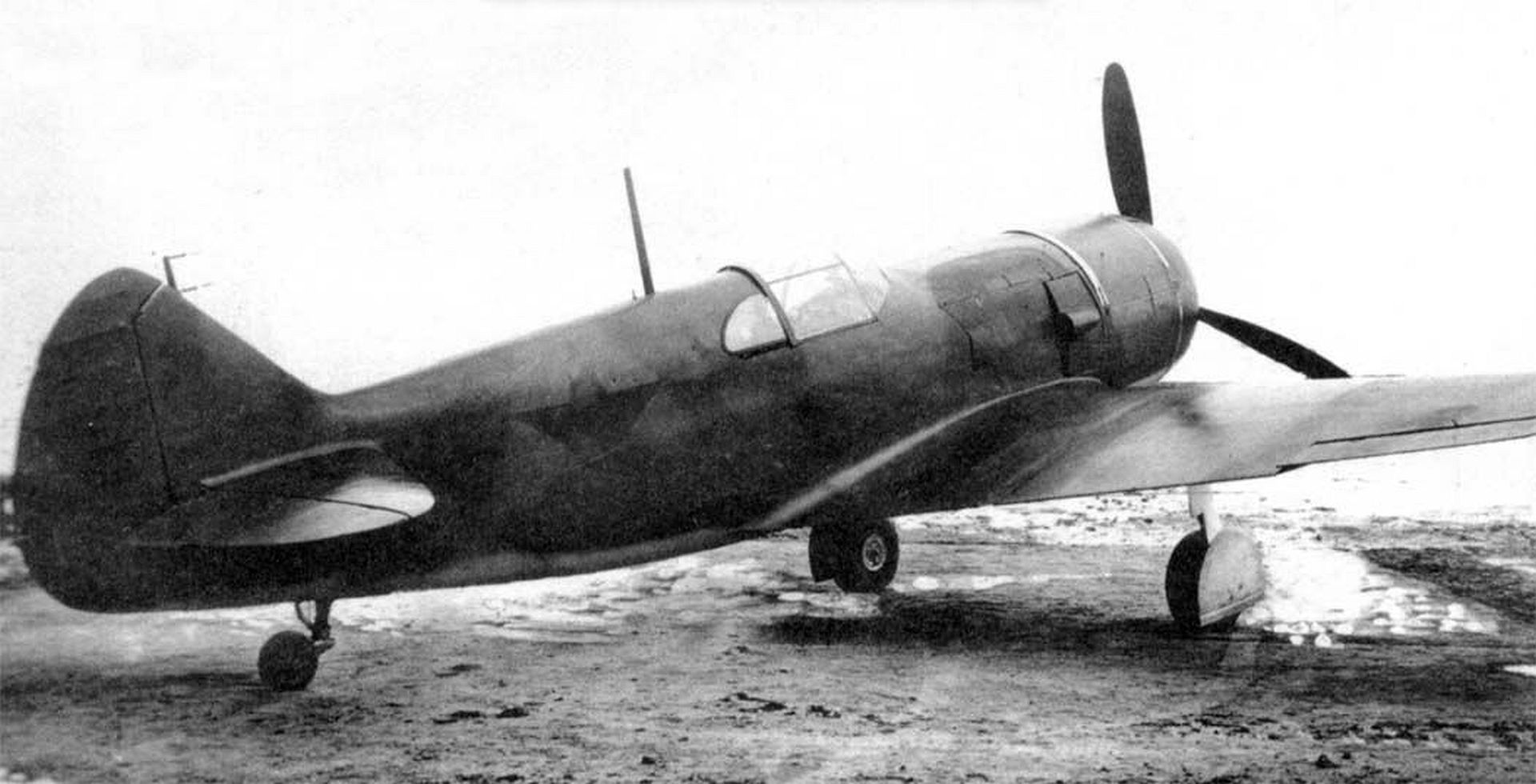
The new engine required work to maintain the aircraft's balance. The prototype first flew in March, and demonstrated surprisingly acceptable performance; air force test pilots considered it to be superior to the Yak-7, and intensive flight tests began in April. The aircraft was named LaG-5; the change from LaGG was because Mikhail Gudkov, one of the original LaGG designers, was no longer with the programme. By July, it was called La-5, although Gorbunov was still involved.
By July, the La-5 was ordered into full production, including the conversion of incomplete LaGG-3 airframes. Production based on the prototype began almost immediately in factories in Moscow and the Yaroslav region. Changes to the main production model included slats to improve all-round performance. The La-5 was inferior to the best German fighters at higher altitudes, but equal at lower altitudes; it was suitable for air combat over the Eastern Front which typically took place at altitudes under 5,000 m (16,404 ft).
The aircraft received further modifications. The La-5F improved the pilot's exterior visibility with a cut down rear fuselage. The definitive La-5FN had a fuel-injected engine, a different engine air intake, and was further lightened. A full circle turn took 18–19 seconds.
Below
Vladimirov's 20-mm synchronized B-20 aircraft cannons on the Soviet La-5FN fighter (serial number 1015) during testing. Despite successfully passing the tests, the B-20 cannon was not put into production.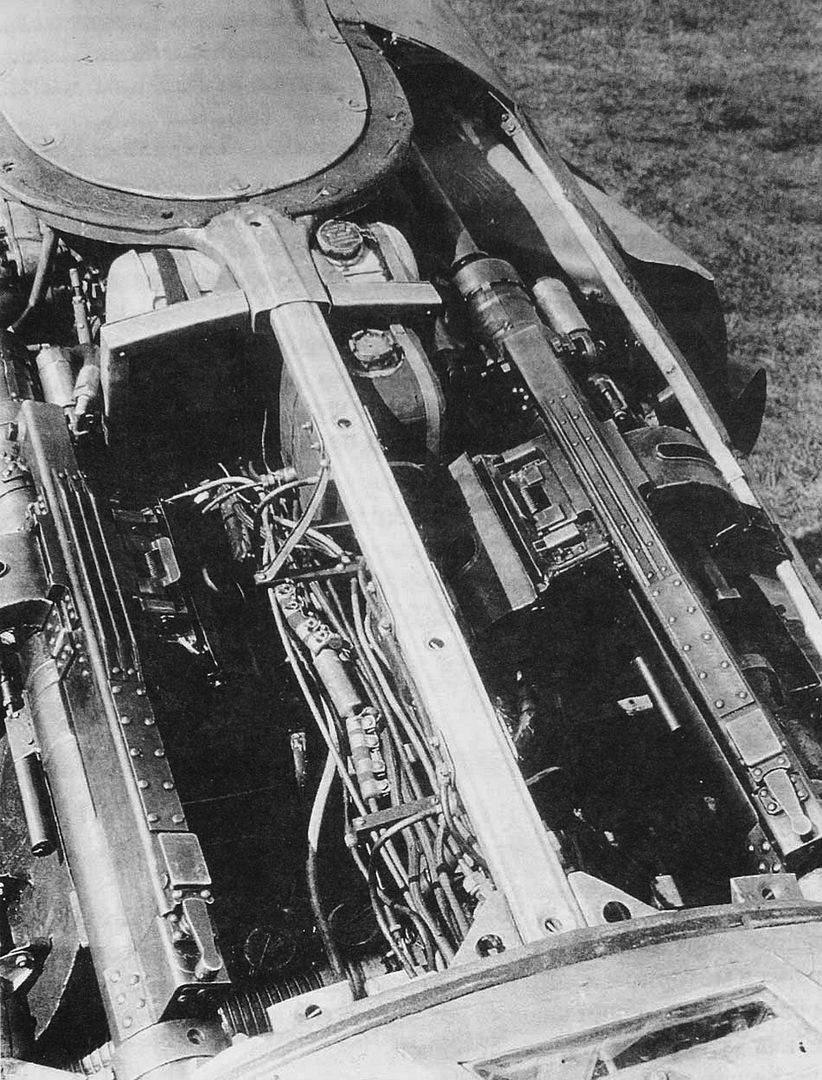
9,920 La-5s of all variants were built, including dedicated trainer versions, designated La-5UTI.
The La-5 was the basis for the further improved Lavochkin La-7.
A number of La-5s continued in the service of Eastern Bloc nations after the end of the war, including Czechoslovakia.
Performance
In mid-1943, a new La-5 was captured by the Germans after making a forced landing at a German airfield. The aircraft was assessed by Luftwaffe test pilot Hans-Werner Lerche. Lerche noted that the La-5FN excelled at altitudes below 3,000 m (9,843 ft) but suffered from short range and flight time of only 40 minutes at cruise engine power. All of the engine controls (throttle, mixture, propeller pitch, cowl flaps, and supercharger gearbox) had separate levers which forced the pilot to make constant adjustments during combat or risk suboptimal performance. For example, rapid acceleration required moving no less than six levers. In contrast, contemporary German aircraft with the BMW 801 used the Kommandogerät engine computer system that automatically controlled all of these settings from a single throttle lever. Due to airflow limitations, the engine boost system (Forsazh) could not be used above 2,000 m (6,562 ft). Stability in all axes was generally good. The authority of the ailerons was deemed exceptional but the rudder was insufficiently powerful at lower speeds. At speeds in excess of 600 km/h (370 mph), the forces on control surfaces became excessive. Horizontal turn time at 1,000 m (3,281 ft) and maximum engine power was 25 seconds.
The La-5's top speed and acceleration were comparable to Luftwaffe fighters at low altitude. The La-5FN roll rate was slightly higher than the Messerschmitt Bf 109; the Bf 109 was slightly faster, and had higher climb and turn rates. The La-5FN climbed slightly faster and had a smaller turn radius than the Focke-Wulf Fw 190A-8. However, the Fw 190A-8 was faster at all altitudes and had significantly better dive performance and a superior roll-rate. Lerche advised Fw 190 pilots to draw the La-5FN to higher altitudes, escape attacks by diving followed by a high-speed shallow climb, and avoid prolonged turning engagements.
The most serious La-5 defects were the engine's thermal isolation, lack of cockpit ventilation, and a canopy that was impossible to open at speeds over 350 km/h. Furthermore, poor engine compartment insulation allowed exhaust gas to enter the cockpit; in response, pilots frequently ignored orders by flying with open canopies.
Soviet pilots were generally satisfied with the La-5. "That was an excellent fighter with two cannons and a powerful air-cooled engine", recalled pilot Viktor M. Sinaisky. "The first La-5s from the Tbilisi factory were slightly inferior, while the last ones from the Gorki plant, which came to us from Ivanovo, were perfect. At first we received regular La-5s, but then we got new ones containing the ASh-82FN engine with direct injection of fuel into the cylinders. It was perfected and had better maneuverability, acceleration, speed and climb rate compared to the early variants. Everyone was in love with the La-5. It was easy to maintain, too."
Nevertheless, La-5 losses were high, the highest of all fighters in service in USSR, excepting those of the Yak-1. In 1941–45, VVS KA lost 2,591 La-5s: 73 in 1942, 1,460 in 1943, 825 the following year, and 233 in 1945.
Below Repair of the La-5 fighter in the workshop of aircraft repair plant No. 570. 1943-1944.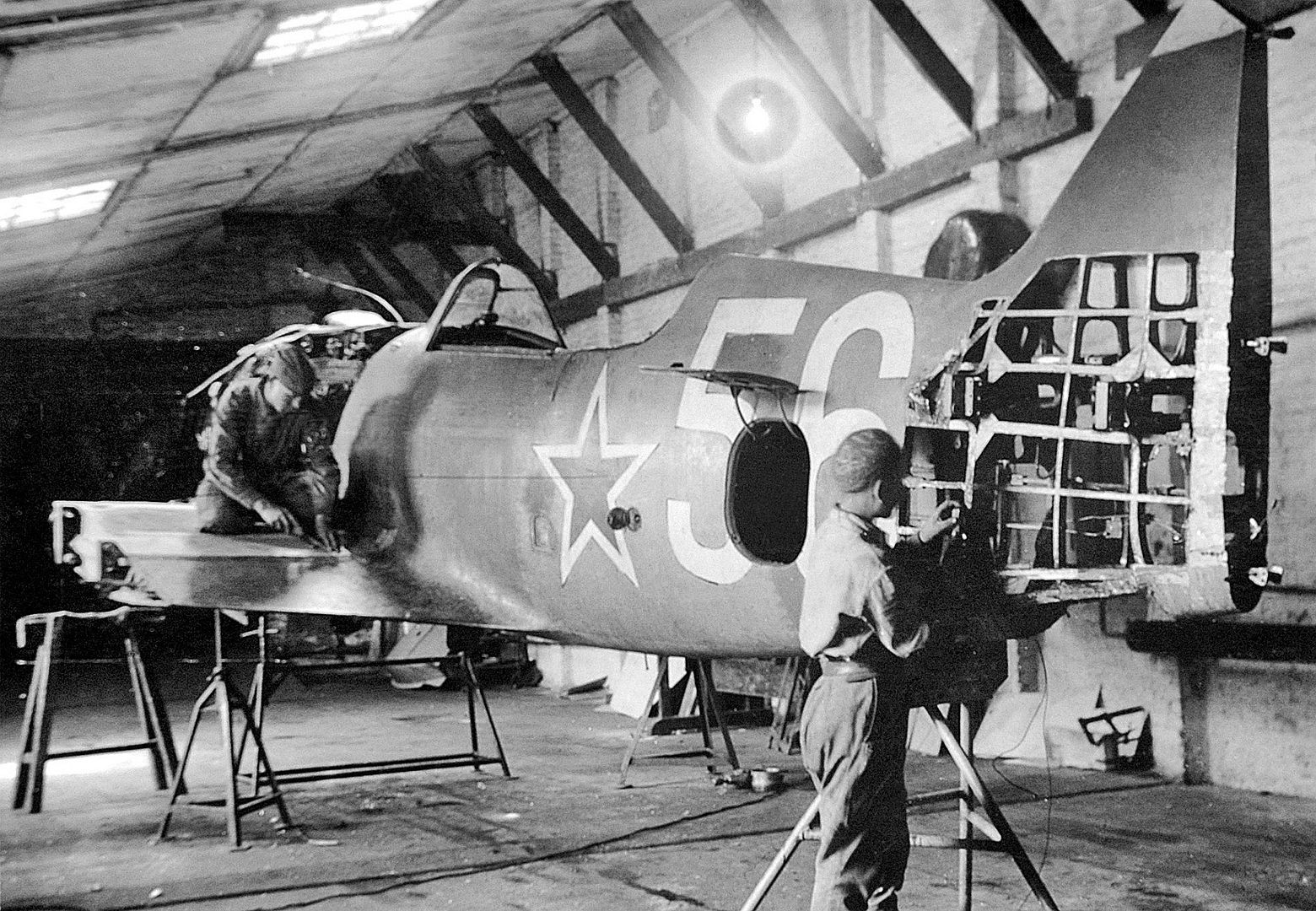
Below Pilots of the 297th Fighter Aviation Regiment near a La-5 fighter at the Dmitrievka airfield.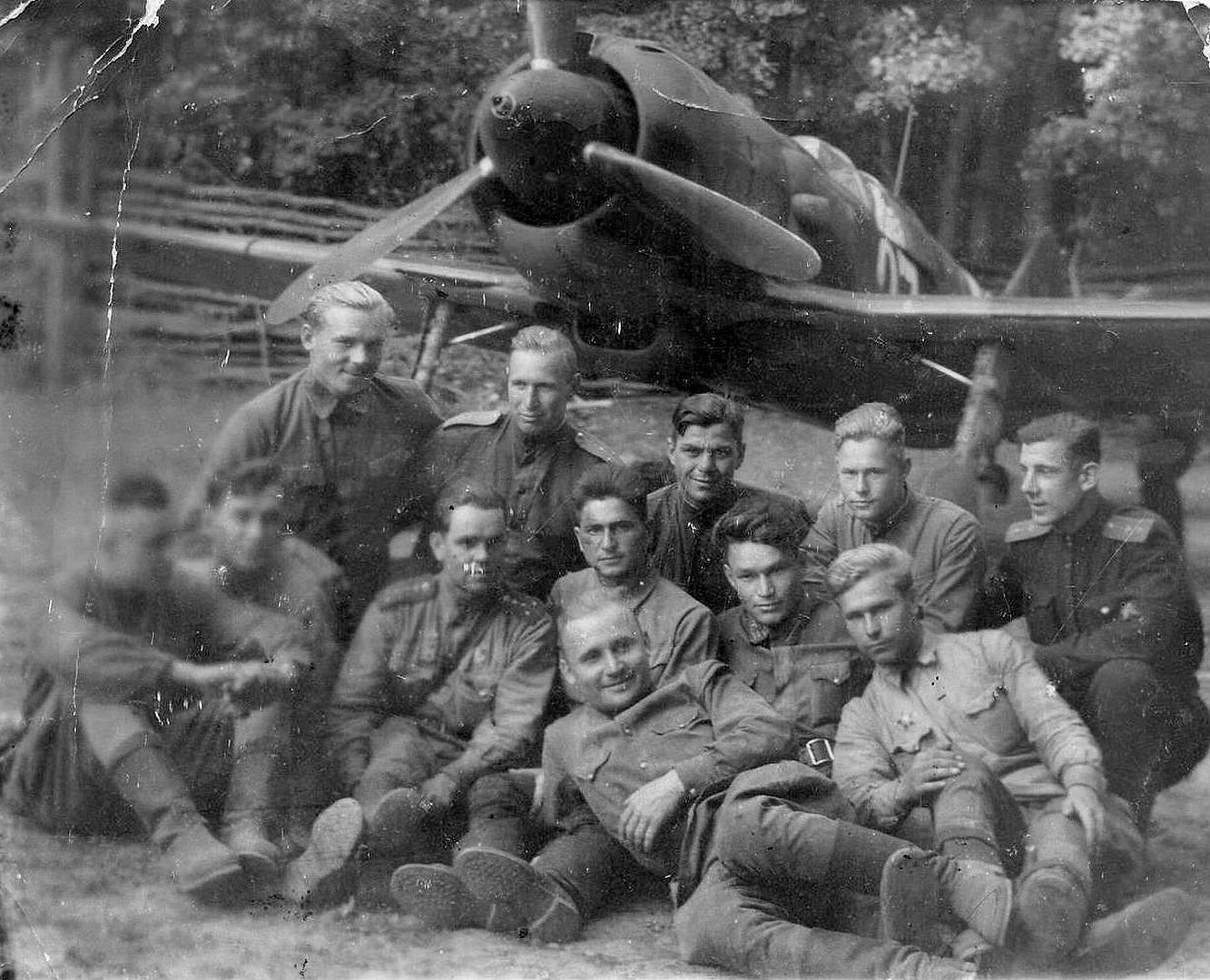
Below Pilots at the La-5 fighter No. 60 of twice Hero of the USSR E.Ya. Savitsky of the Valery Chkalov squadron of the 159th Fighter Aviation Regiment, built with funds from the workers of the Gorky region.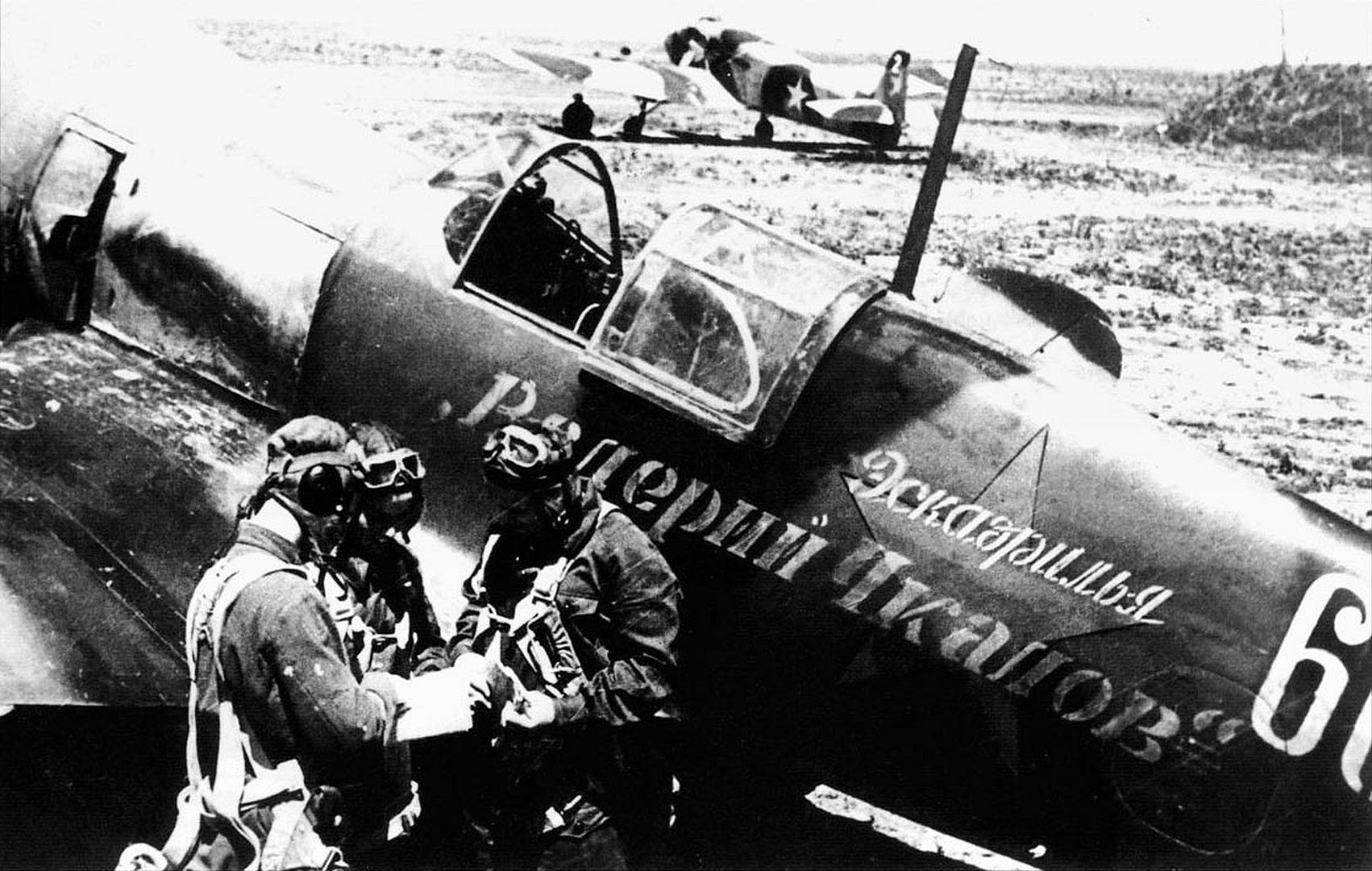
Below Pilot of the 907th Fighter Aviation Regiment of the Air Defense of the 9th Fighter Aviation Corps, Hero of the Soviet Union, Captain Grigory Kapitonovich Gultyaev on the wing of a La-5 fighter.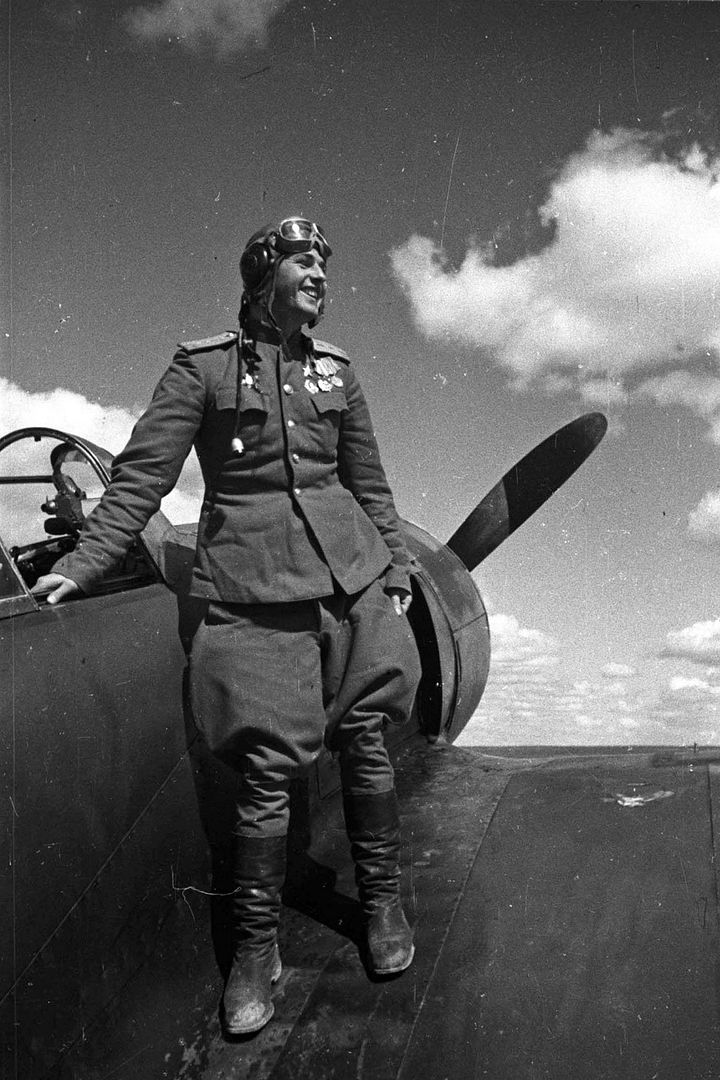
Below pilot of the 4th Guards Fighter Aviation Regiment of the Navy, Guards Senior Lieutenant V.M. Dmitriev, in front of his La-5 fighter.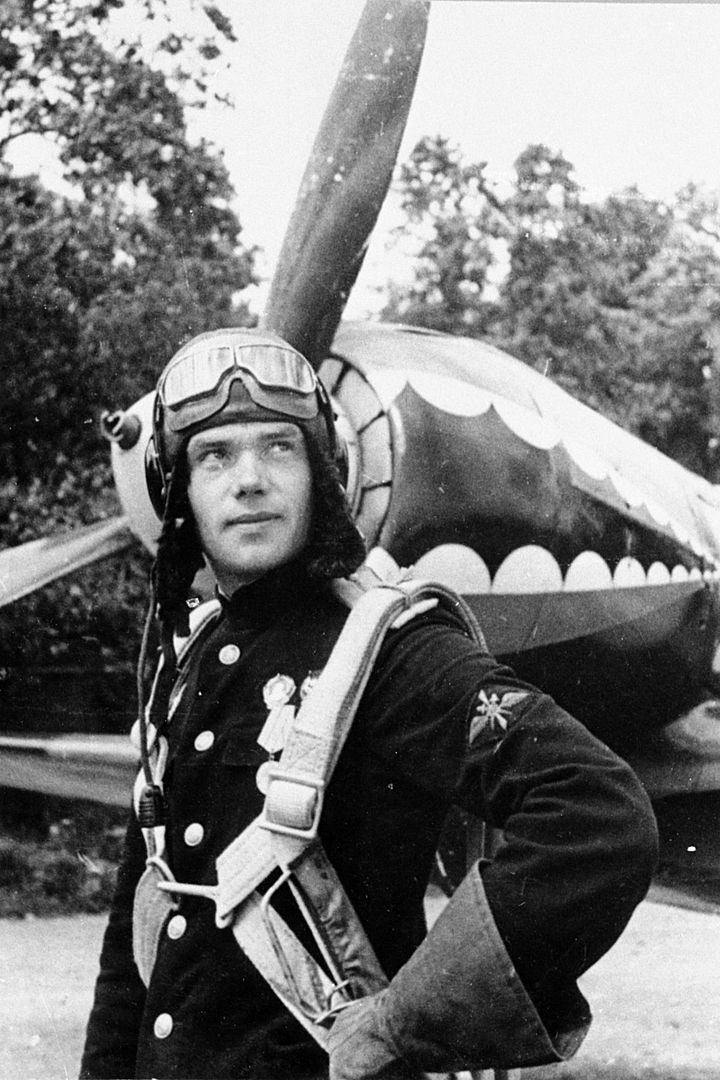
Below La-5 fighter of Hero of the Soviet Union G.D. Kostylev at the First Museum of the Defense of Leningrad. In the background is the Yak-7 fighter of Twice Hero of the Soviet Union P.A. Pokryshev.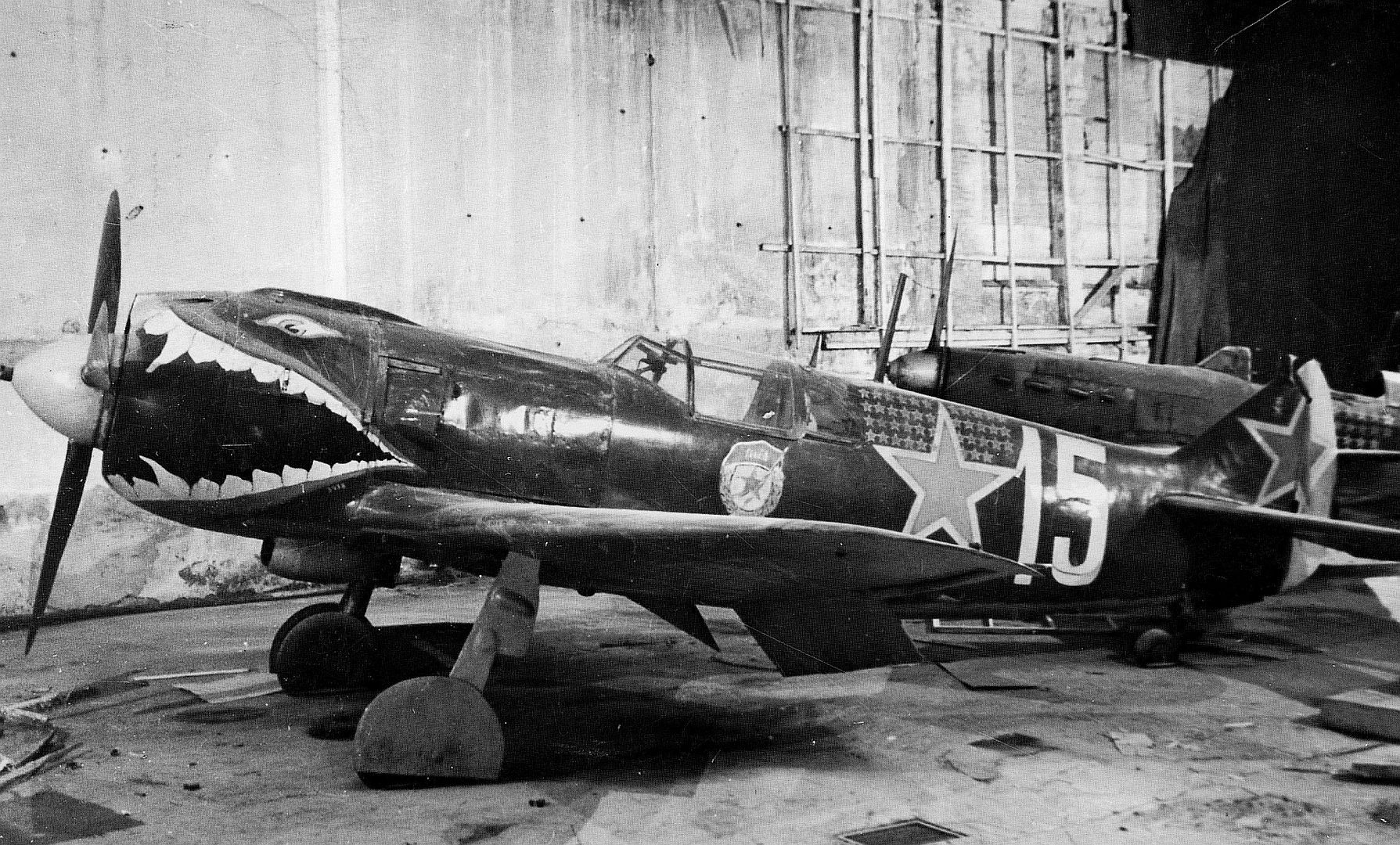
Below Lieutenant Nikolai Dmitrievich Devyatkin (21st Fighter Aviation Regiment) next to an La-5 fighter after a successful air battle with a German Focke-Wulf Fw.189 reconnaissance aircraft near Dukhovshchina.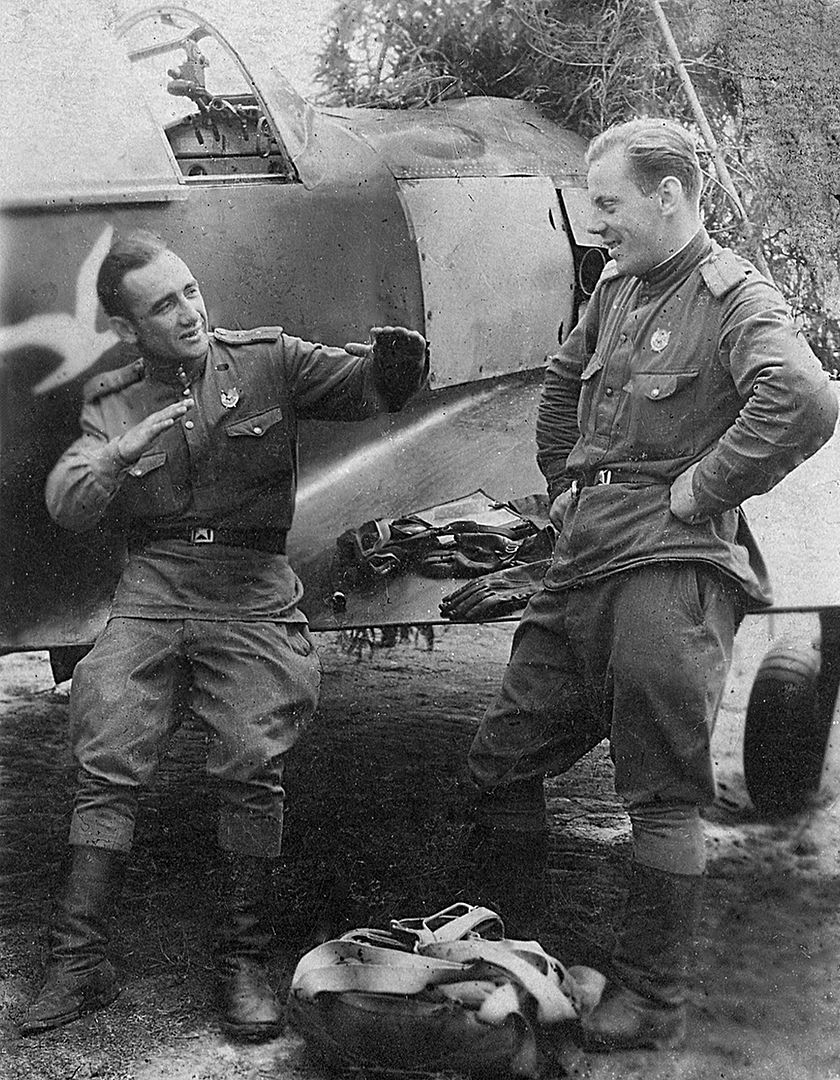
Below La-5 fighter prepares for takeoff. The aircraft's fuselage displays the pilot's victory markings.1943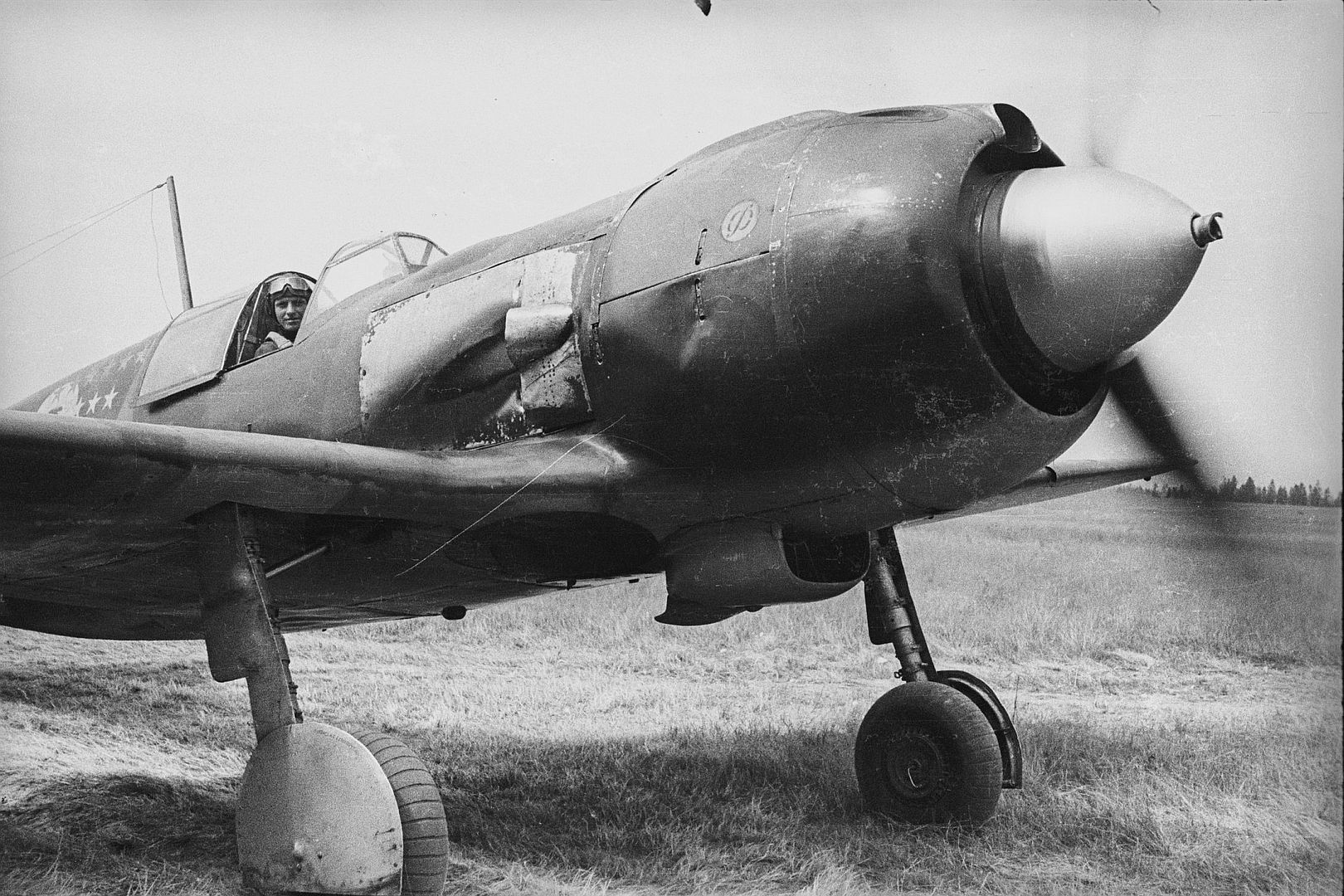
Below Hero of the Soviet Union Captain Vitaly Ivanovich Popkov (1922-2010) climbs into the cockpit of his La-5 fighter.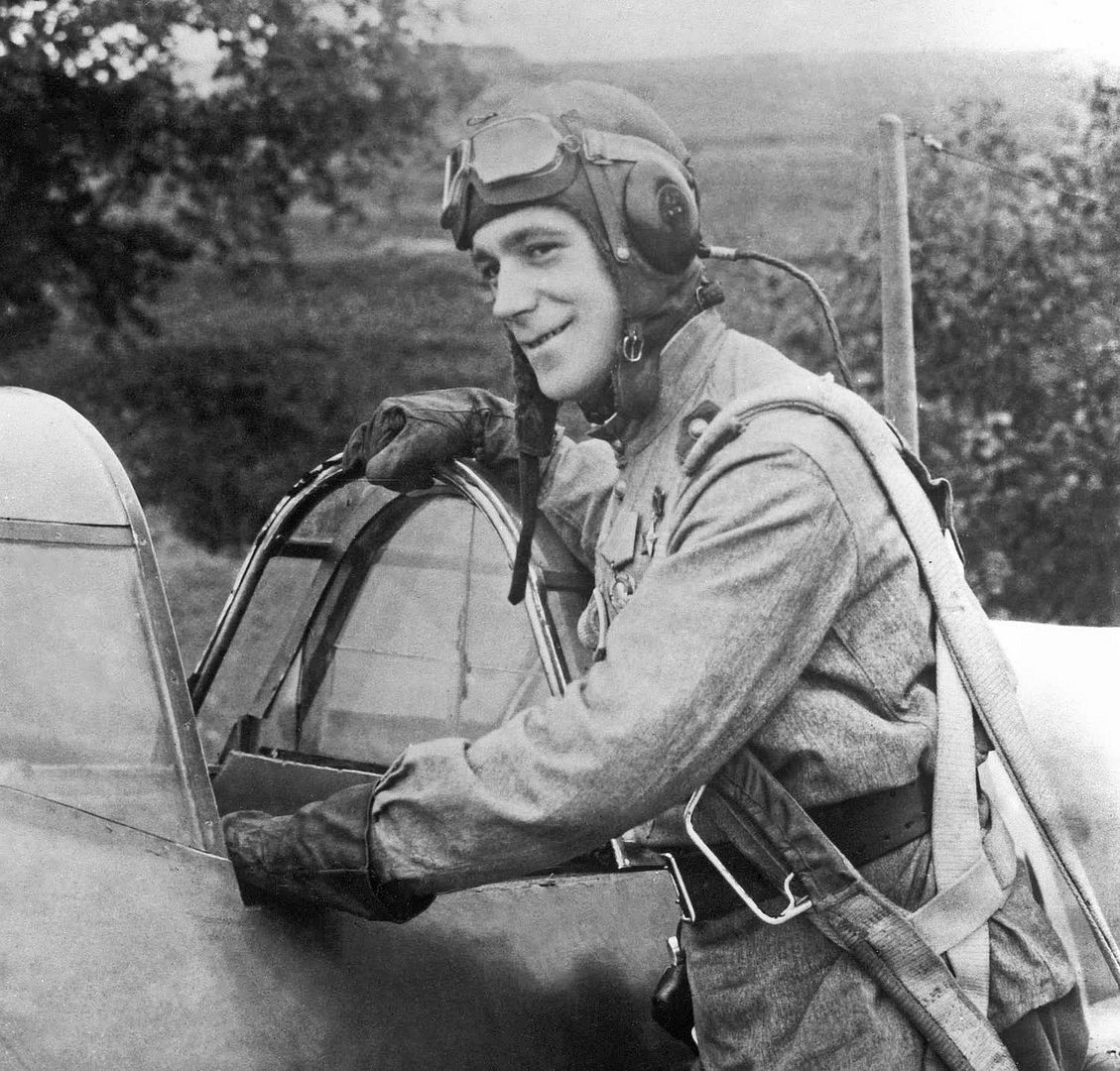
Below Flight commander of the 31st Fighter Aviation Regiment Nikolai Mikhailovich Skomorokhov (1920-1994) stands next to the marks of the enemy aircraft he shot down, which are placed on the side of his La-5 fighter.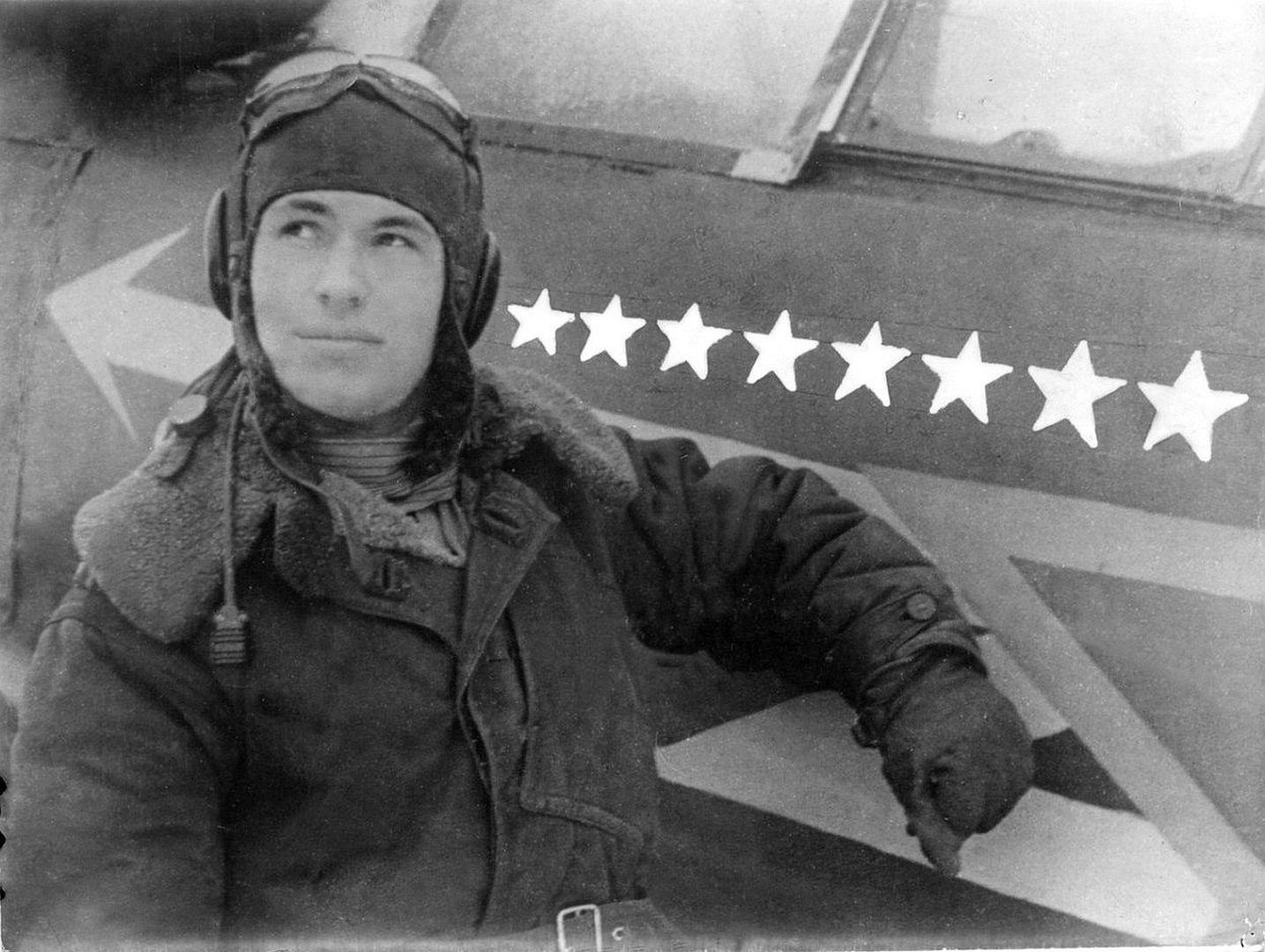
Below Commander of the 3rd Squadron of the 4th Guards Fighter Aviation Regiment of the Red Banner Baltic Fleet Air Force, Guards Captain Evgeny Terentievich Tsyganov (22.08.1921 - 23.05.1971) with a La-5 fighter.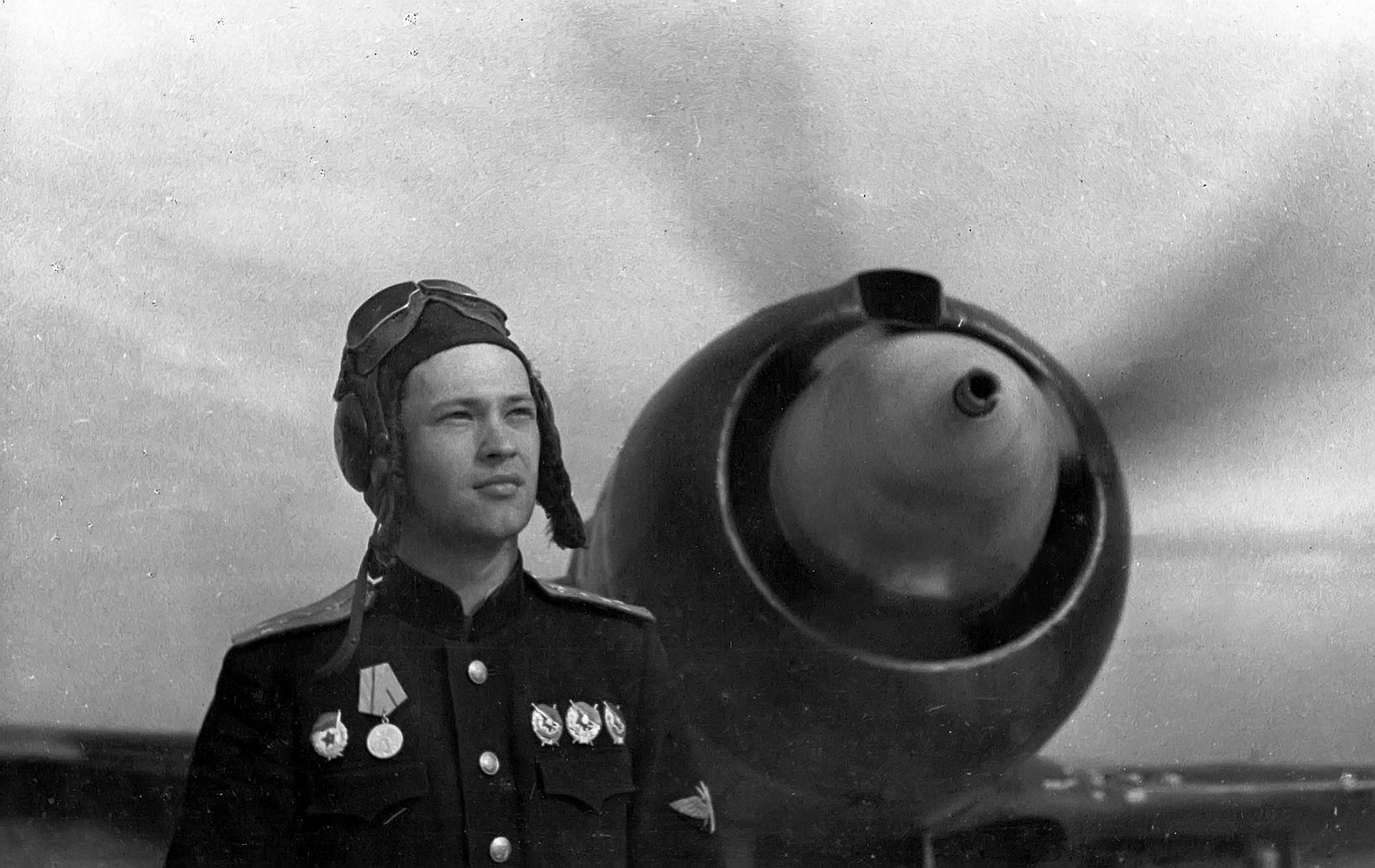
Below A concert by the string quartet of the Moscow Conservatory's front-line brigade at a field airfieldDuring the war, the Moscow Conservatory's front-line brigade gave more than five hundred concerts. La-5 fighters in the background.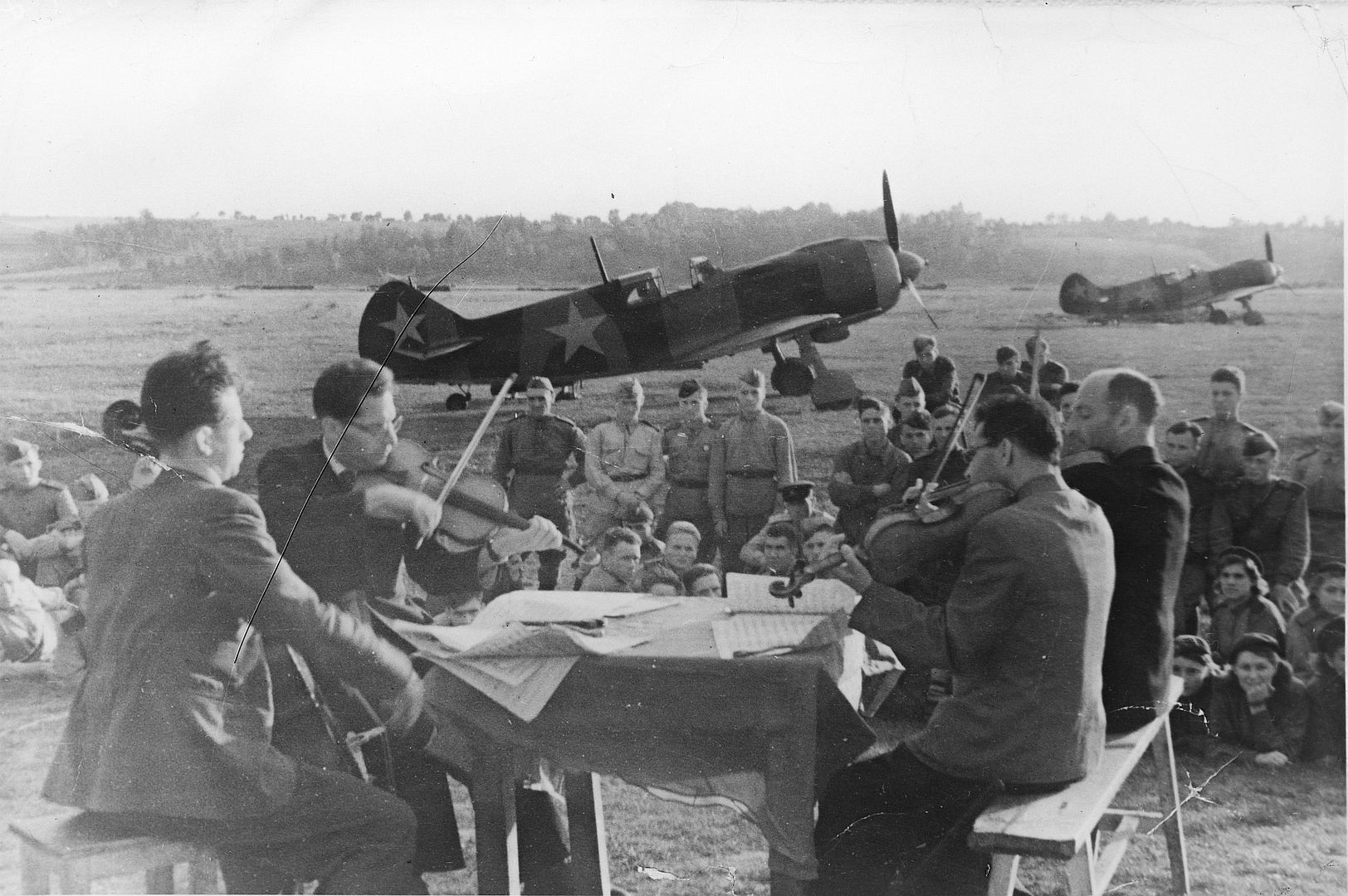
Below Squadron commander of the 159th Fighter Aviation Regiment, Senior Lieutenant Petr Yakovlevich Likholetov (1917–1945) near the La-5 fighter of the Valery Chkalov squadron.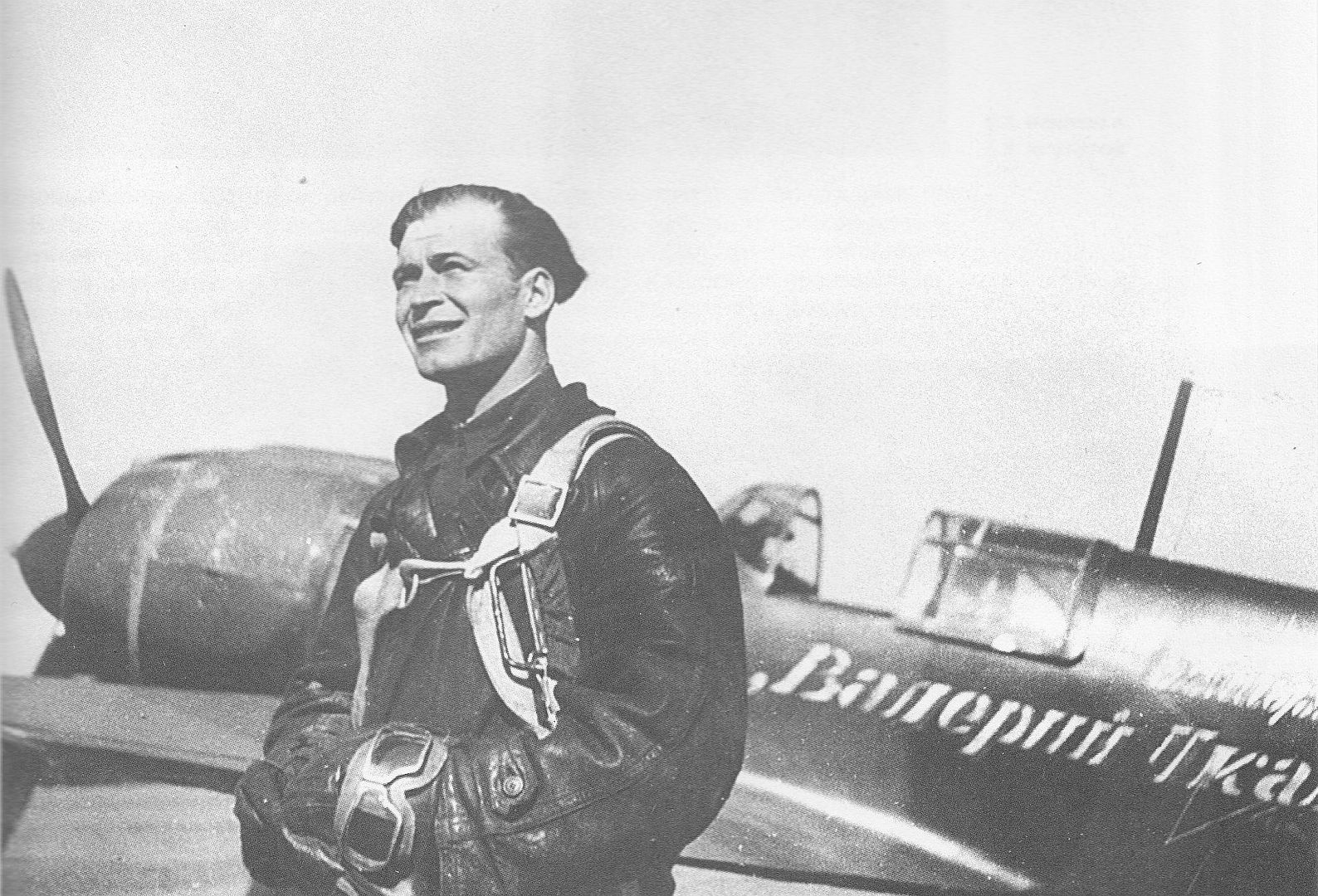
Below A cameraman films pilots of the Valery Chkalov squadron at an airfield in Kuban near an La-5 fighter (tail number 60). The aircraft was built with funds donated by workers in the Gorky region.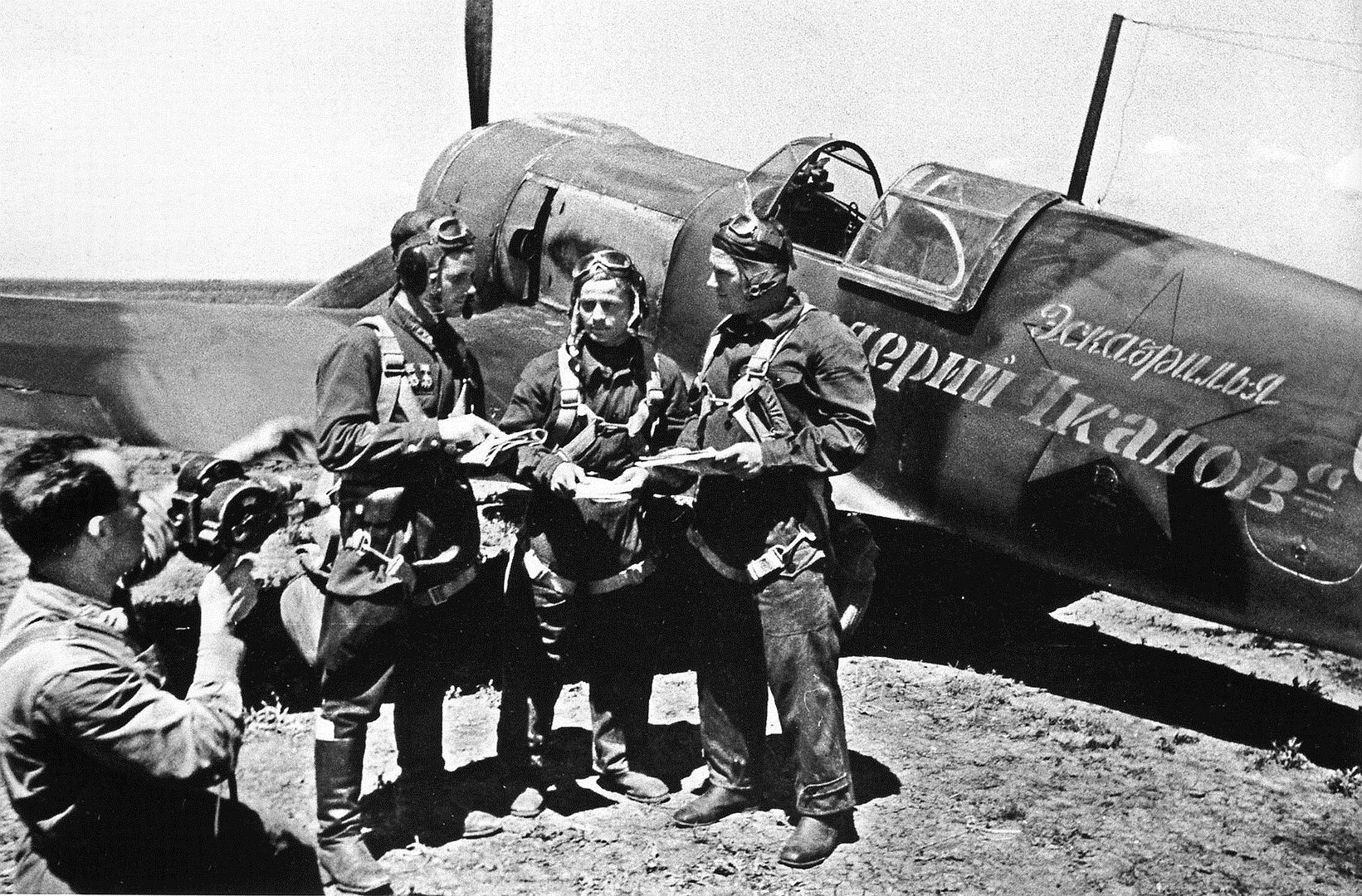
Below Assembly line of La-5F fighters at Aircraft Plant No. 21 in Gorky.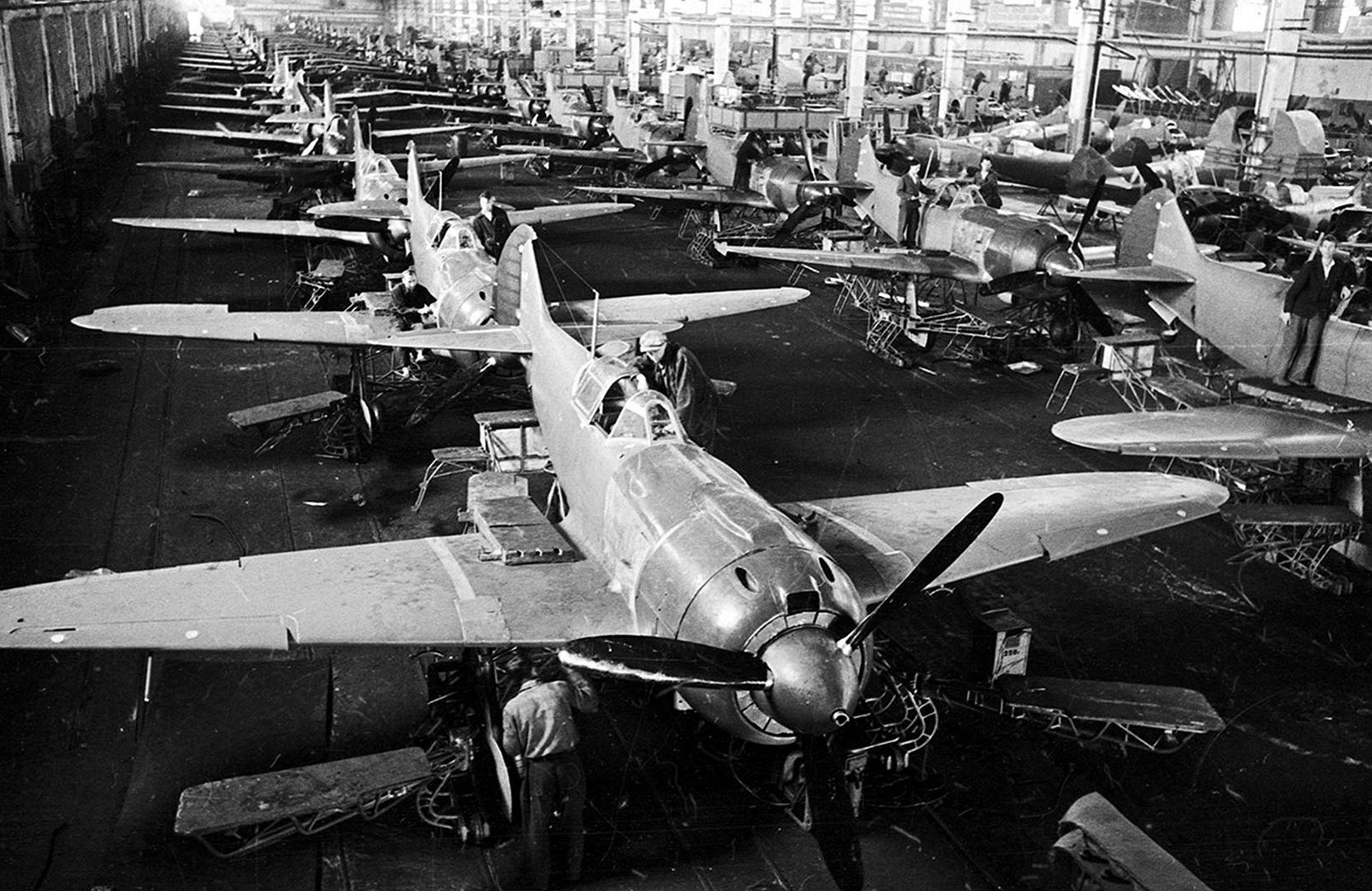
Below The men of the Normandie Niémen fighter group take a moment to relax and joke in front of a Soviet-made Lavochkine La-5F fighter plane.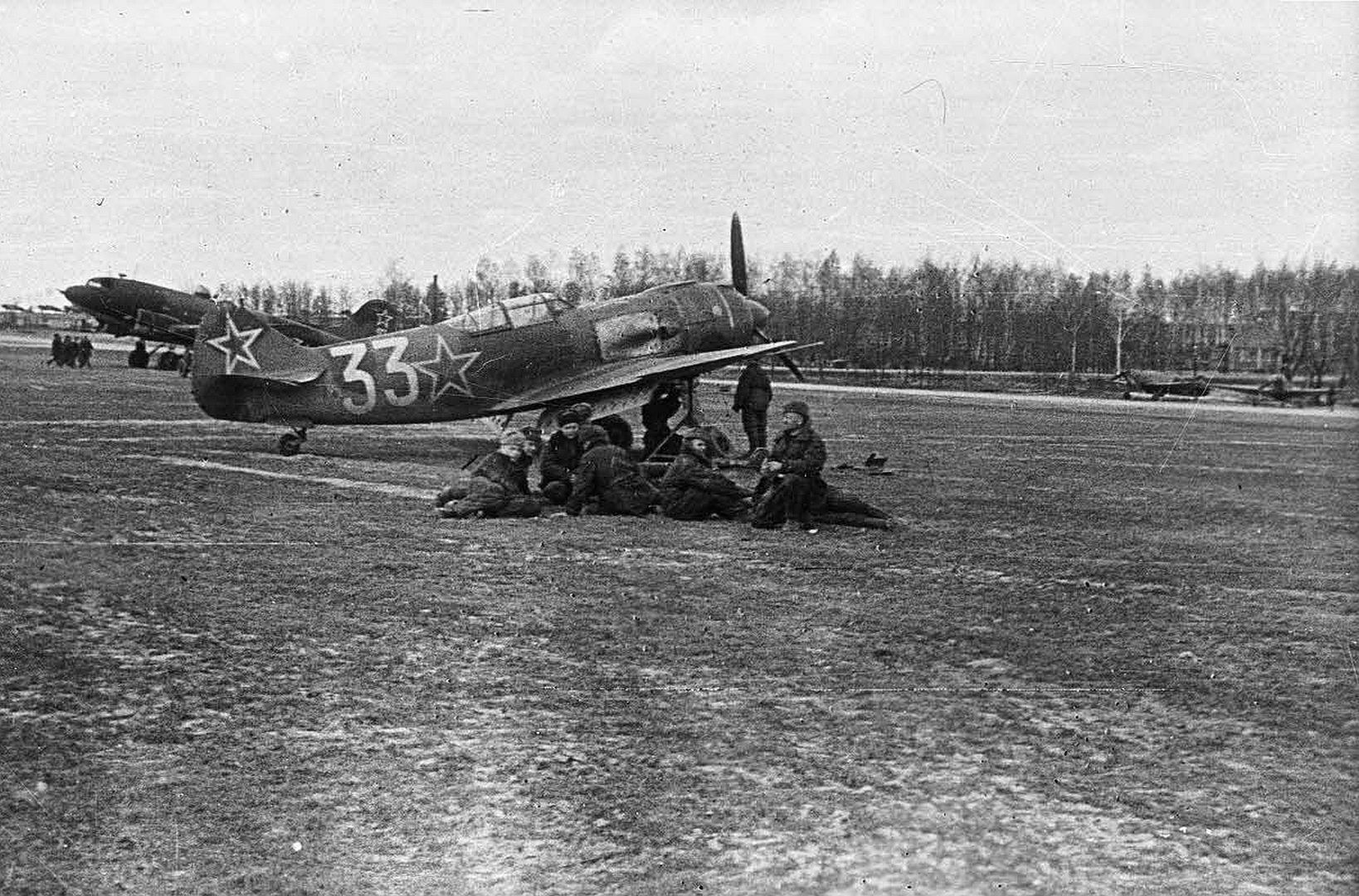
Below Senior Lieutenant Viktor Markovich Dudnichenko with his La-5F fighter. 239th Fighter Aviation Regiment.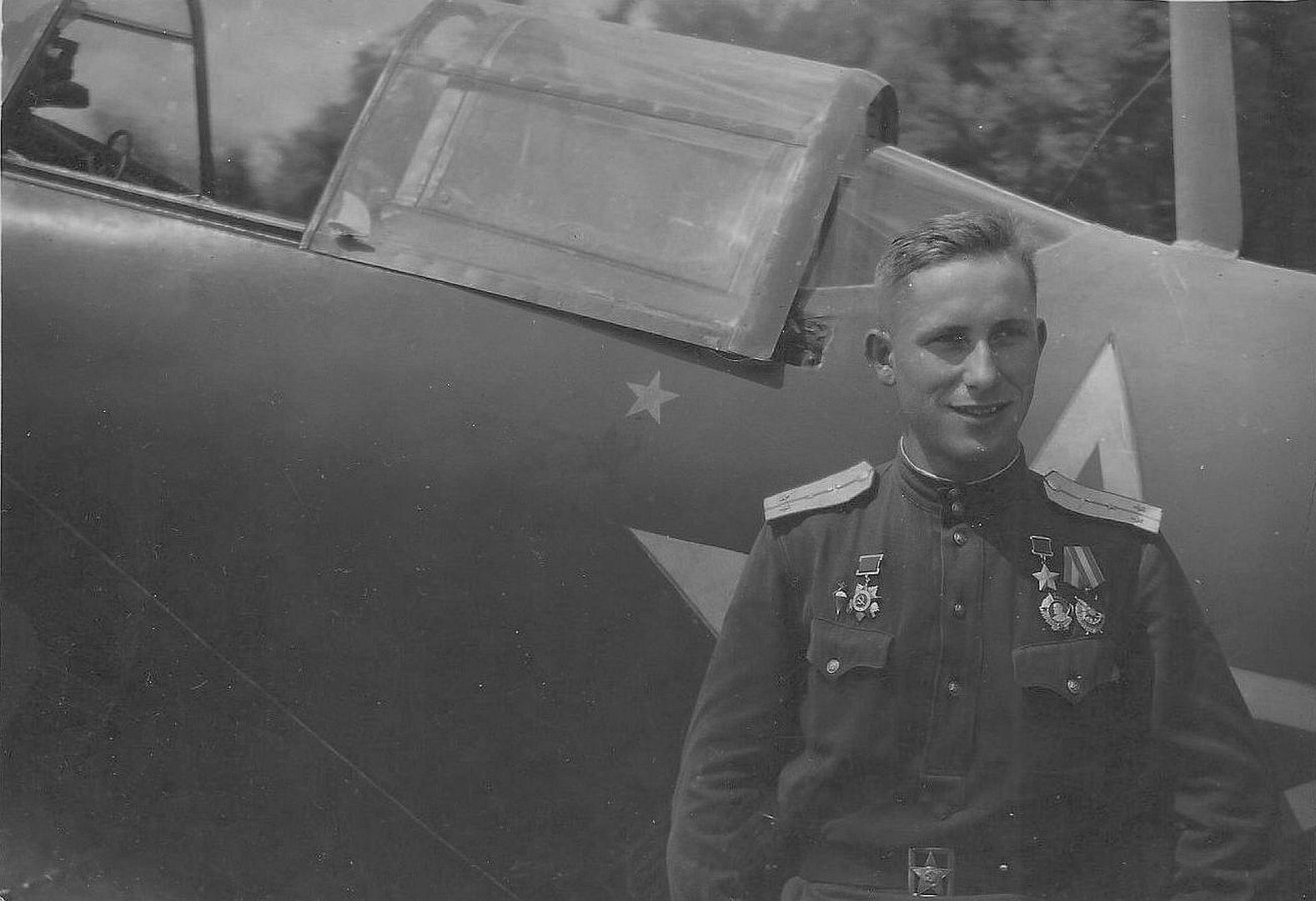
Below Pilots of the 848th Fighter Aviation Regiment, 194th Fighter Aviation Division, 17th Air Army, 4th Ukrainian Front, take a smoke break near an La-5F fighter at Yambol Airfield in Bulgaria.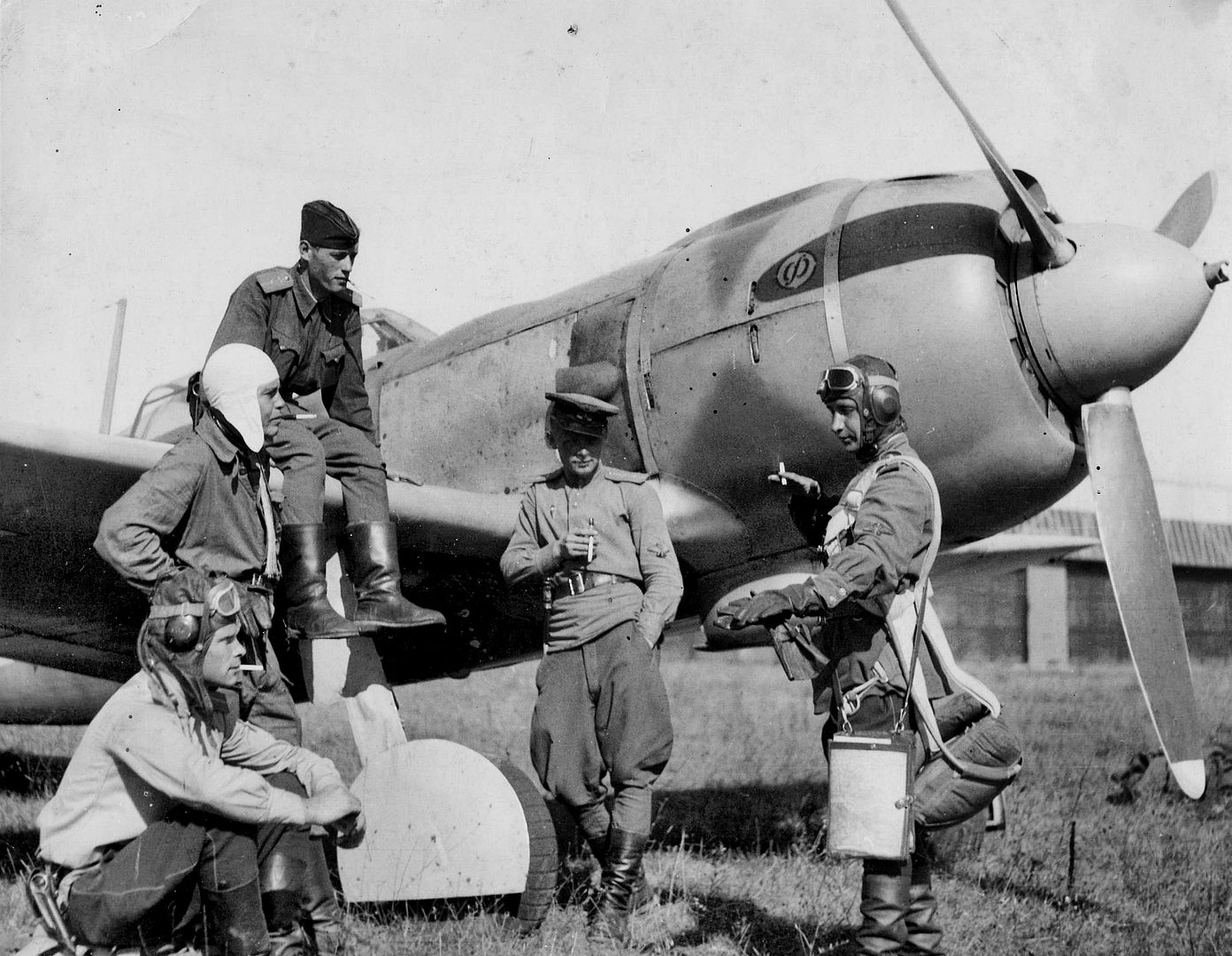
Below Pilot of the 848th Fighter Aviation Regiment of the 194th Fighter Aviation Division of the 17th Air Army of the 4th Ukrainian Front, Mikhail Pavlovich Golikov with a La-5F fighter at the Yambol airfield.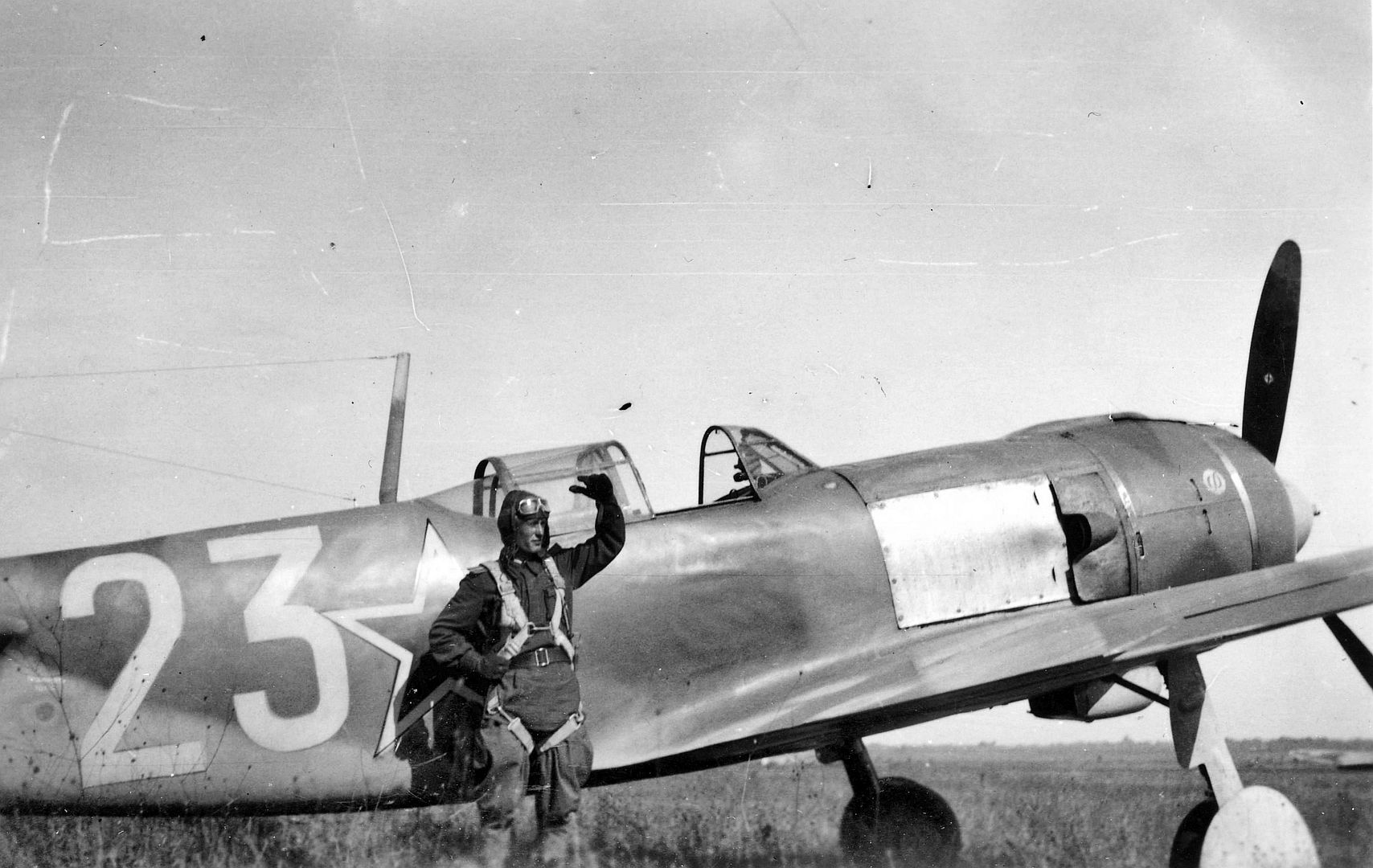
Below Mikhail Pavlovich Golikov left with his fellow soldiers near the La-5F fighter at the Yambol airfield.of the 848th Fighter Aviation Regiment of the 194th Fighter Aviation Division of the 17th Air Army of the 4th Ukrainian Front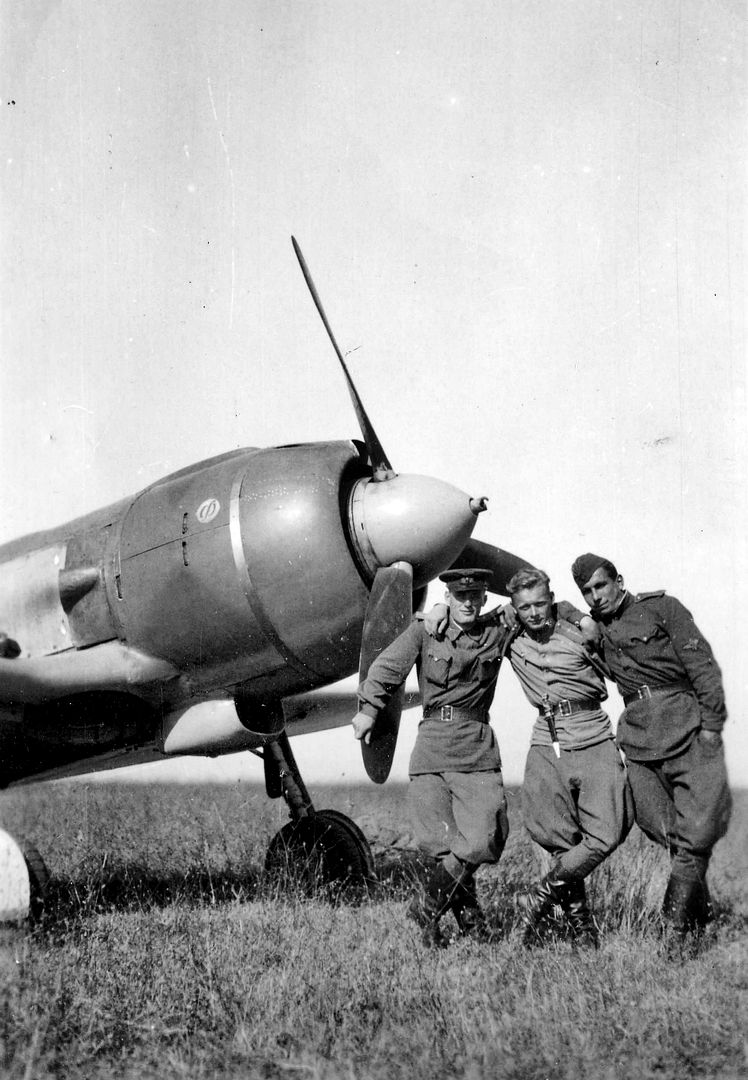
Below Members of the State Jazz Orchestra "Jolly Fellows", conducted by L. Utesov, inspect the La-5F fighter at the Frunze Moscow Central Airfield.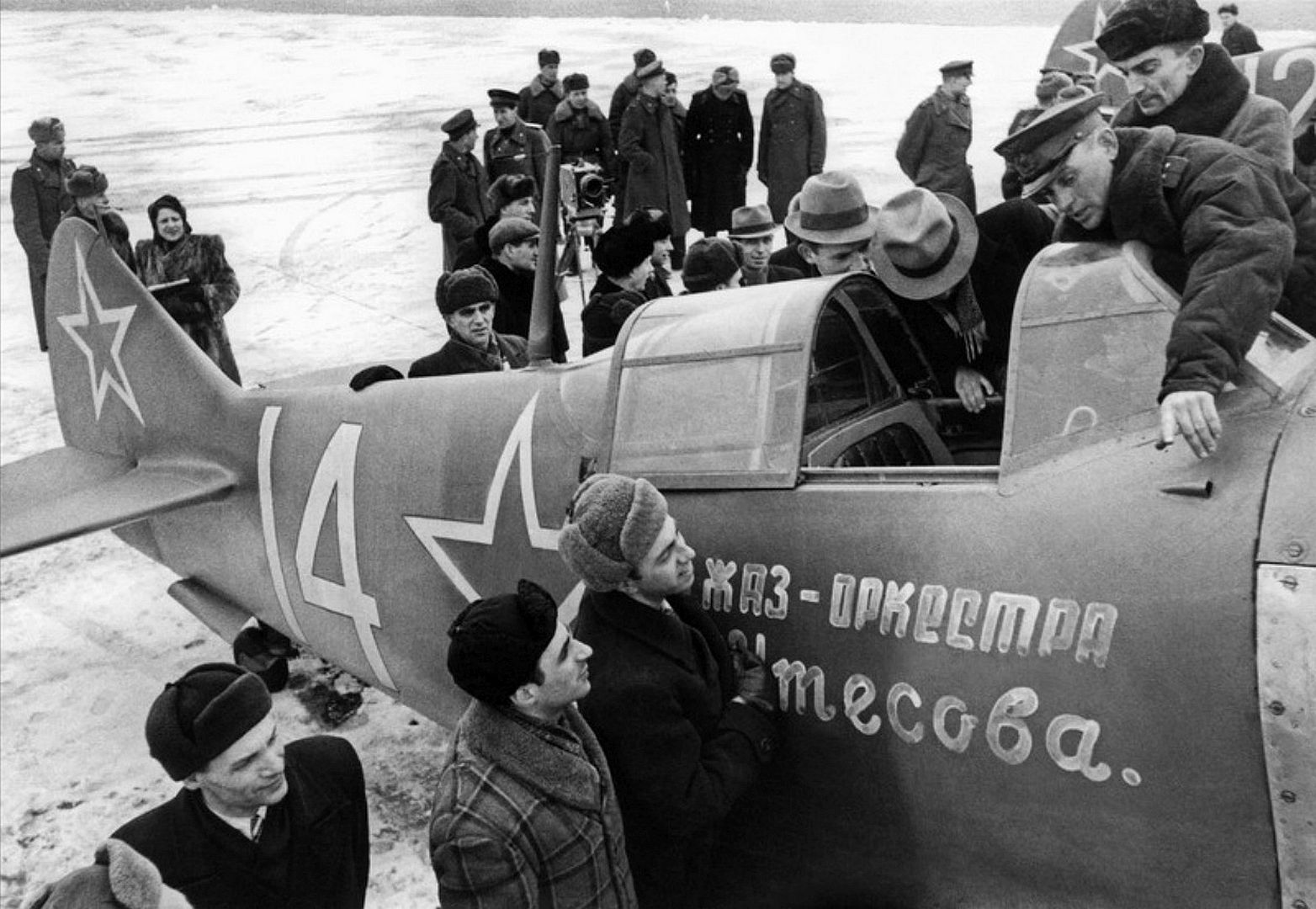
Below Leonid Utesov on the wing of an La-5F fighter jet, built with funds from his Veselye Rebyata ensemble. The moment the aircraft was handed over to the troops.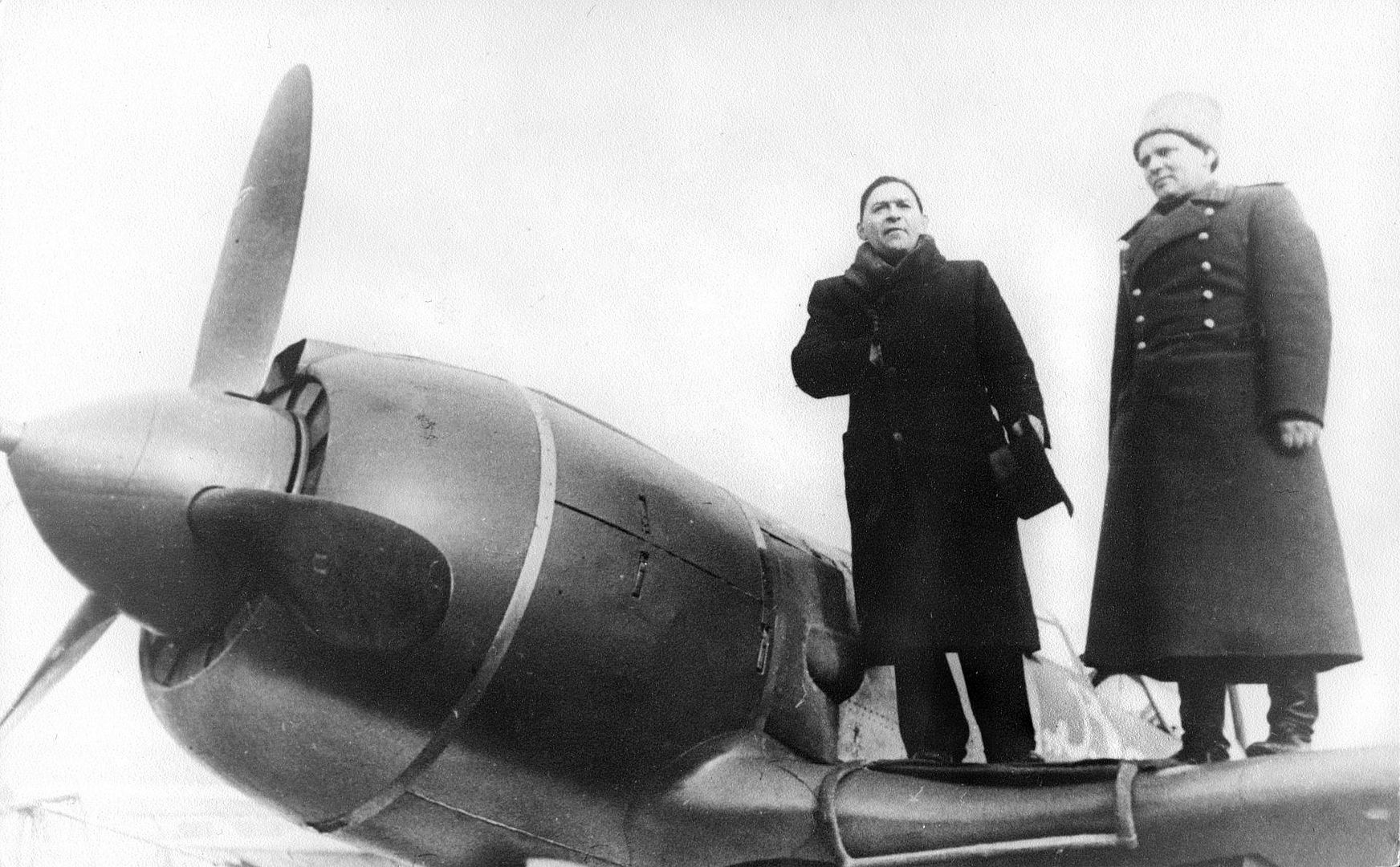
Below Lavochkin La-5F fighters are lined up on an airfield. They belong to the Normandy Niemen.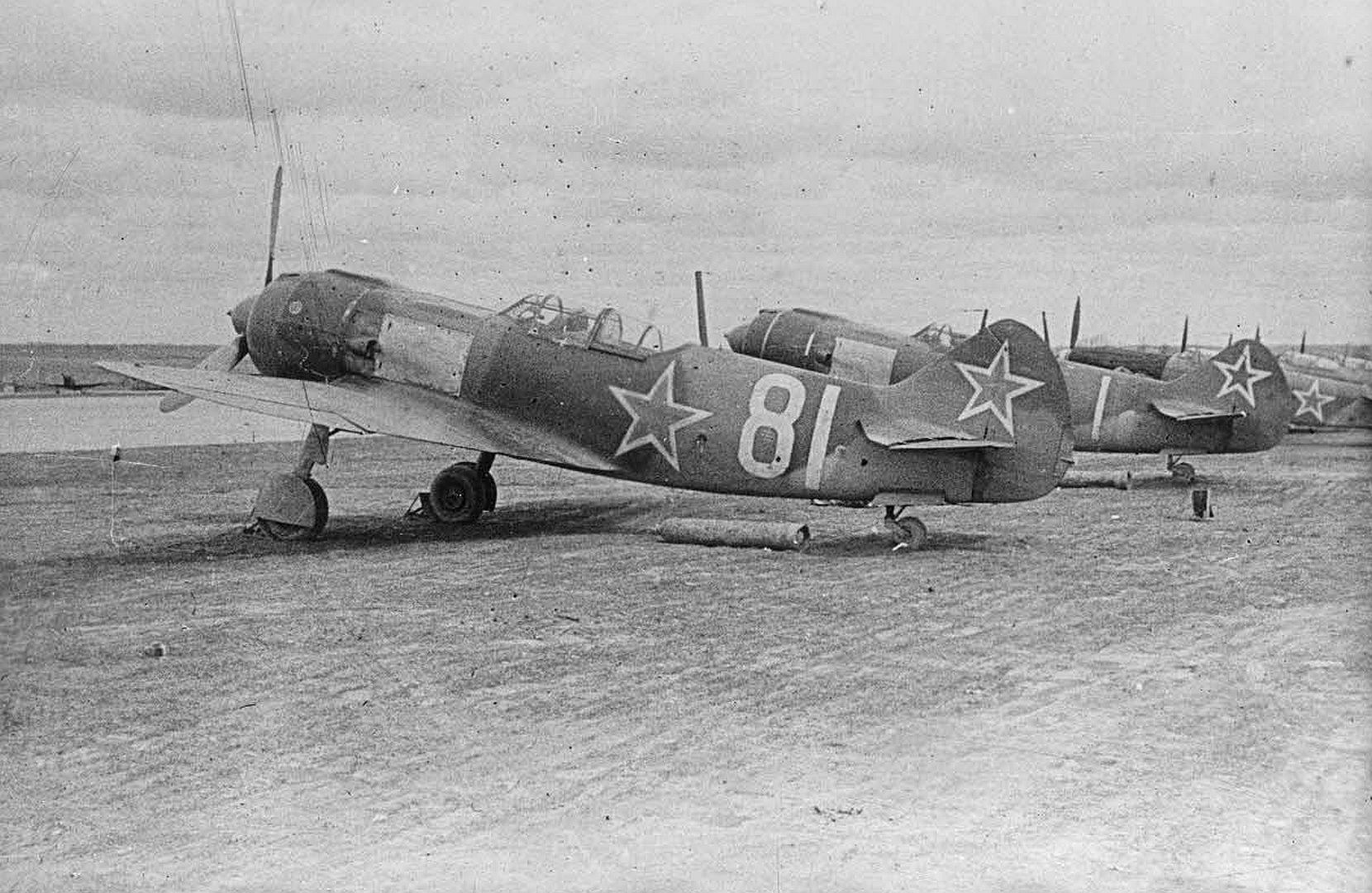
Below La-5F fighter of the Soviet 911th Fighter Aviation Regiment after the accident on May 25, 1944.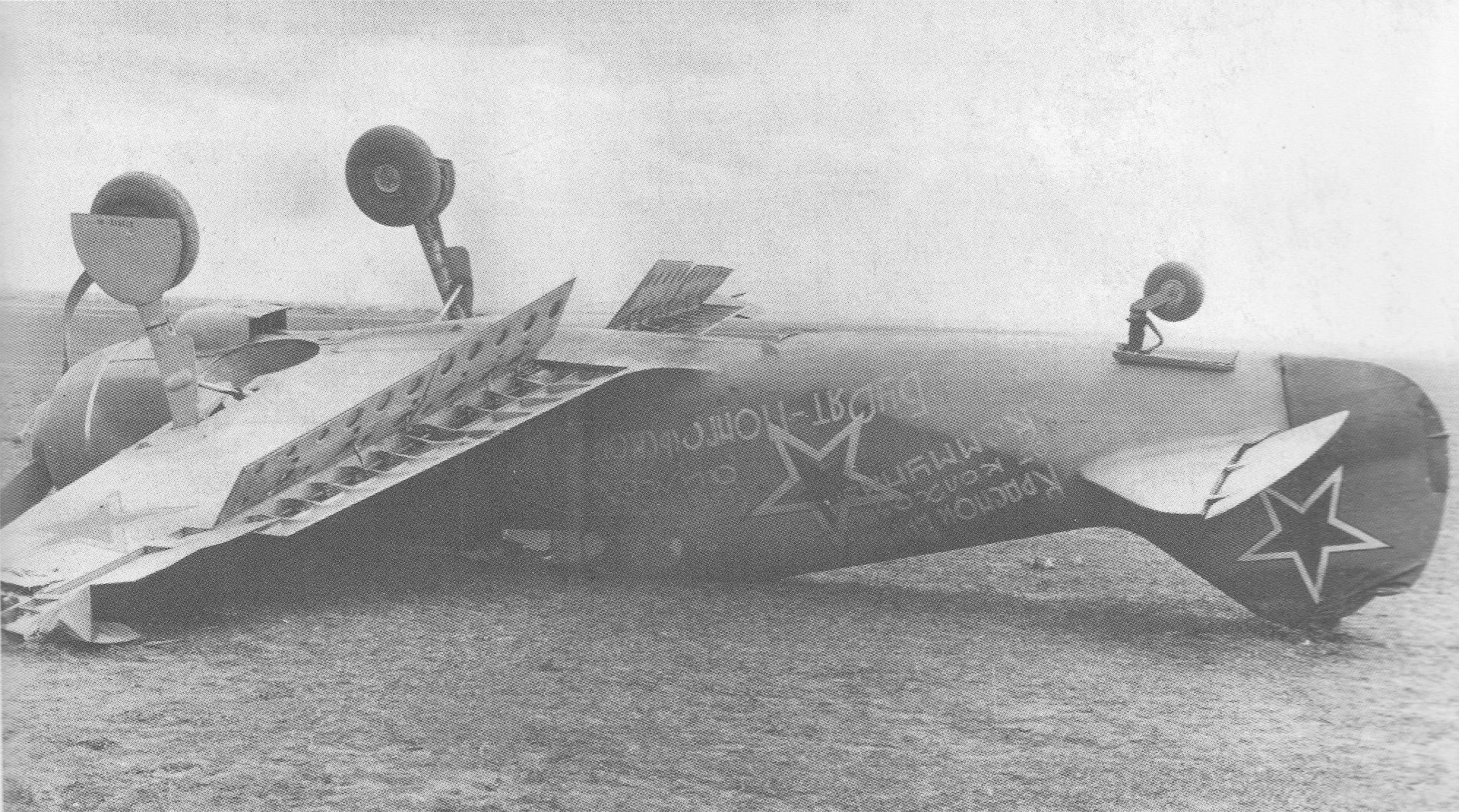
Below Captain Georgy Dmitrievich Kostylev with his La-5f fighter with marks for 43 victories.1944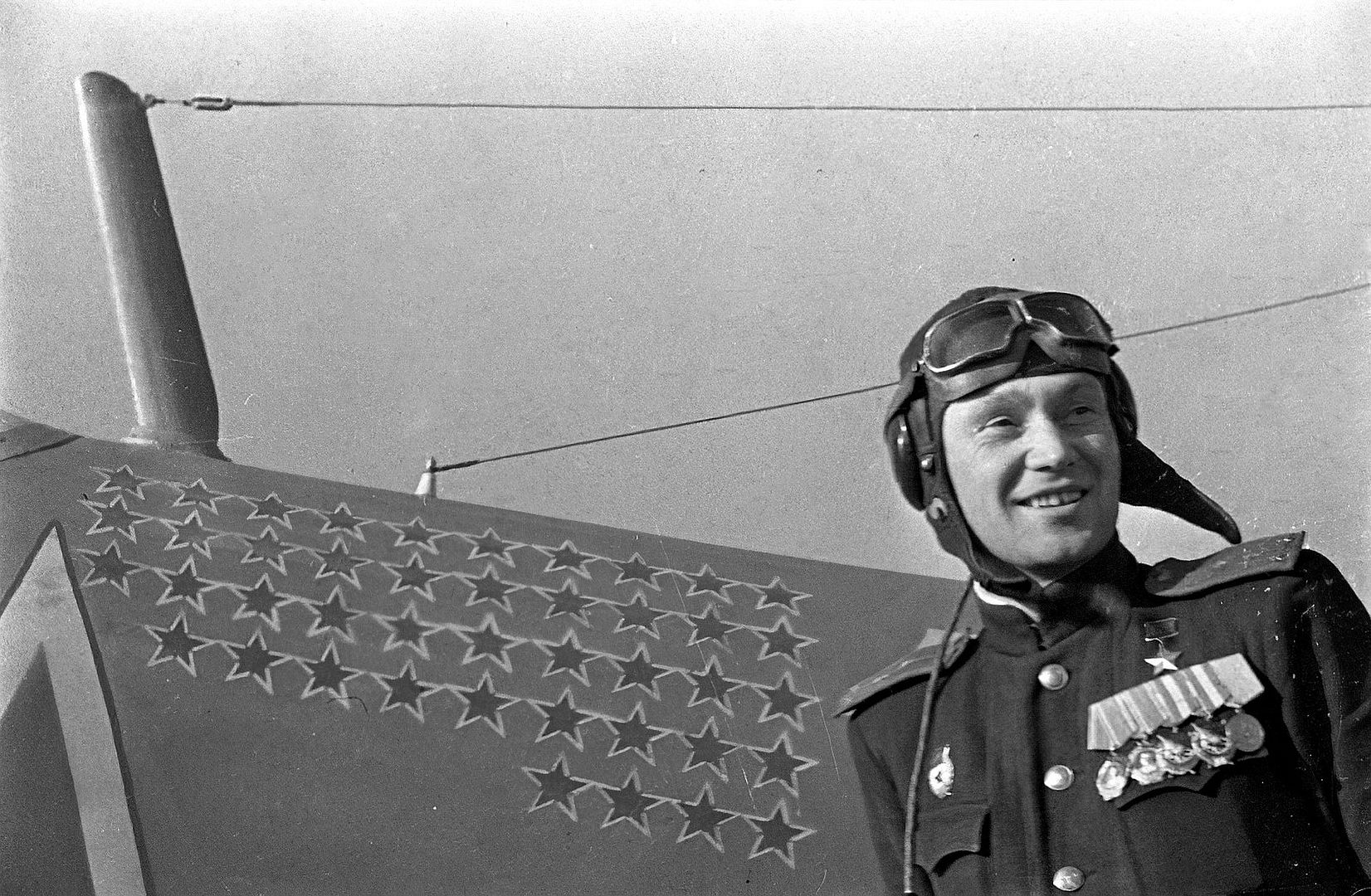
Below An La-5F fighter from the Mongolian Arat squadron undergoing testing at the Air Force Research Institute. Aircraft for this squadron were built in August 1943 with donations from Mongolian livestock breeders (arats).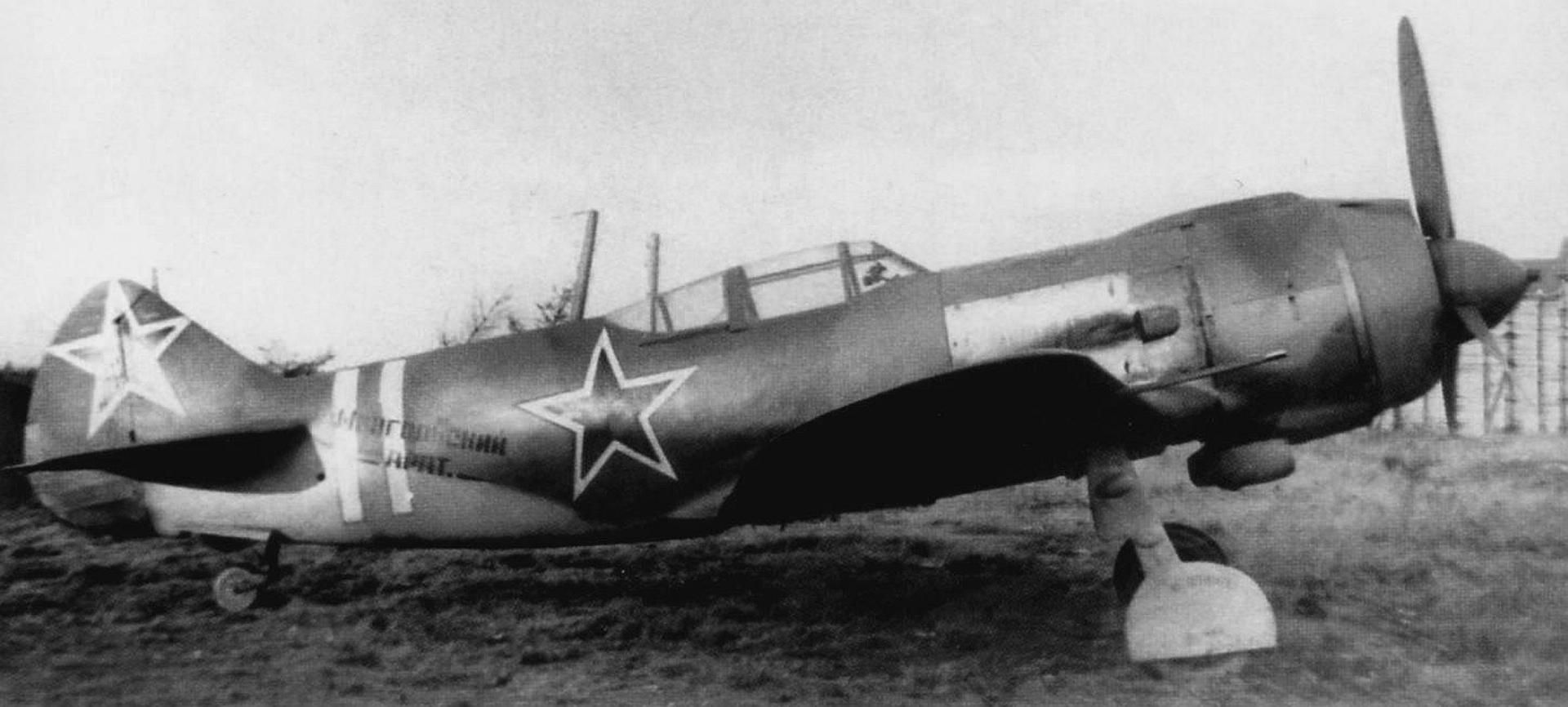
Below A Soviet La-5F fighter from the 8th Guards Fighter Aviation Division in flight. Kursk Bulge area.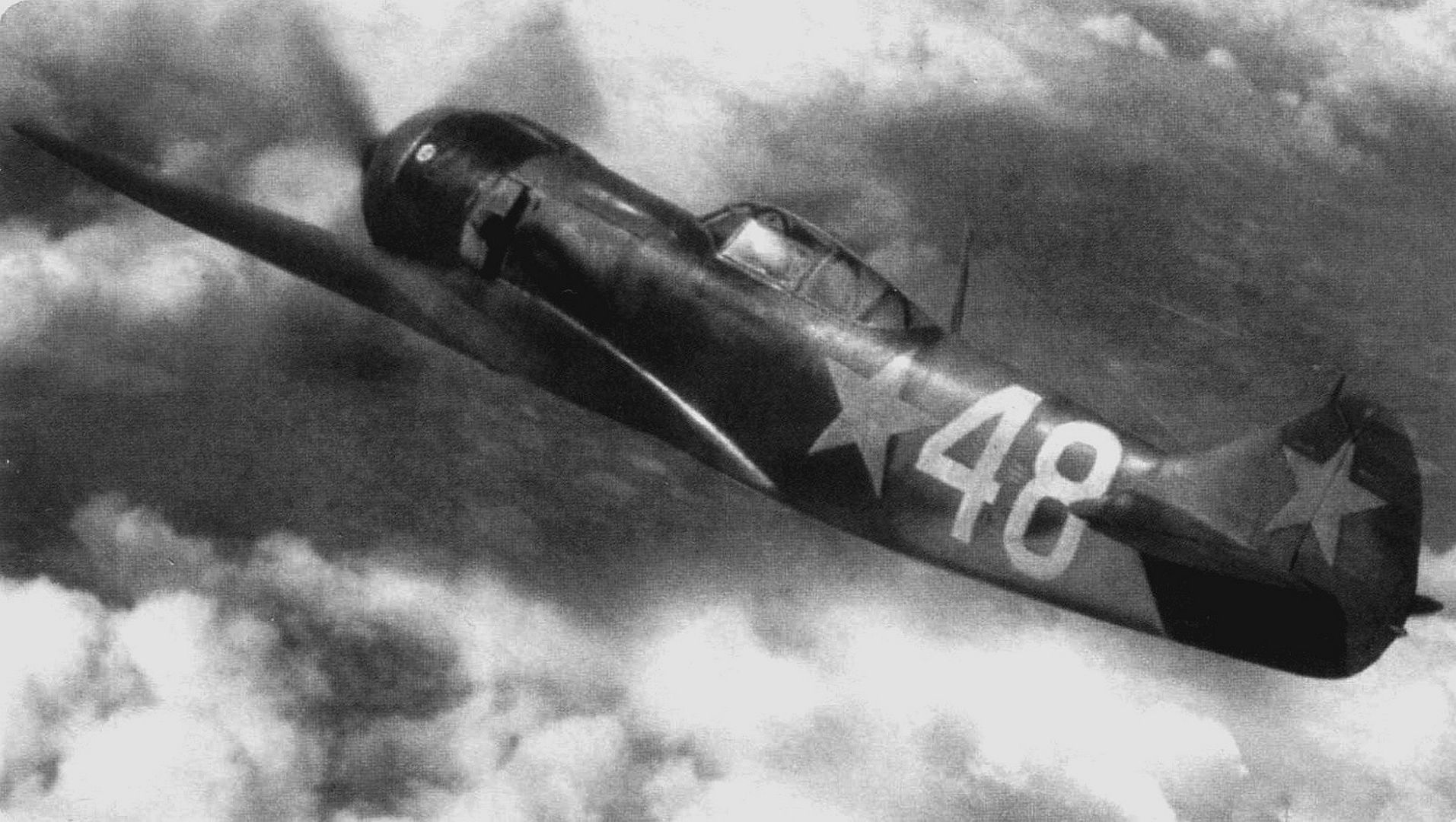
Below A Soviet La-5F fighter with German markings at an airfield in Kuban. Standing in front of the fighter are Soviet cameramen and photographers (from left to right) M.I. Poychenko, David Grigorievich Sholomovich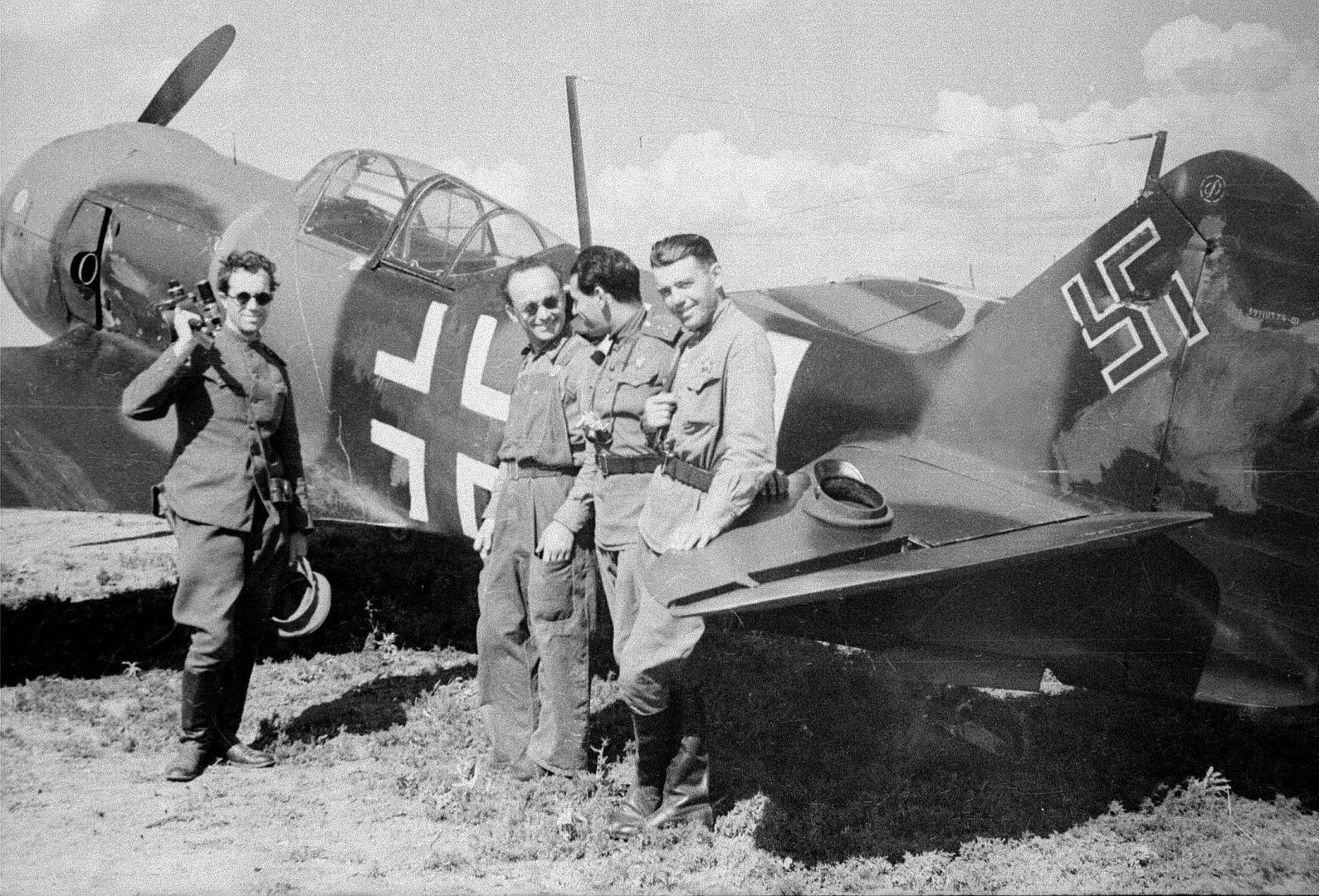
Below Squadron commander of the 171st Fighter Aviation Regiment of the 315th Fighter Aviation Division, Captain I.A. Veshnyakov, in the cockpit of a La-5FN fighter with the inscription For Oleg Koshevoy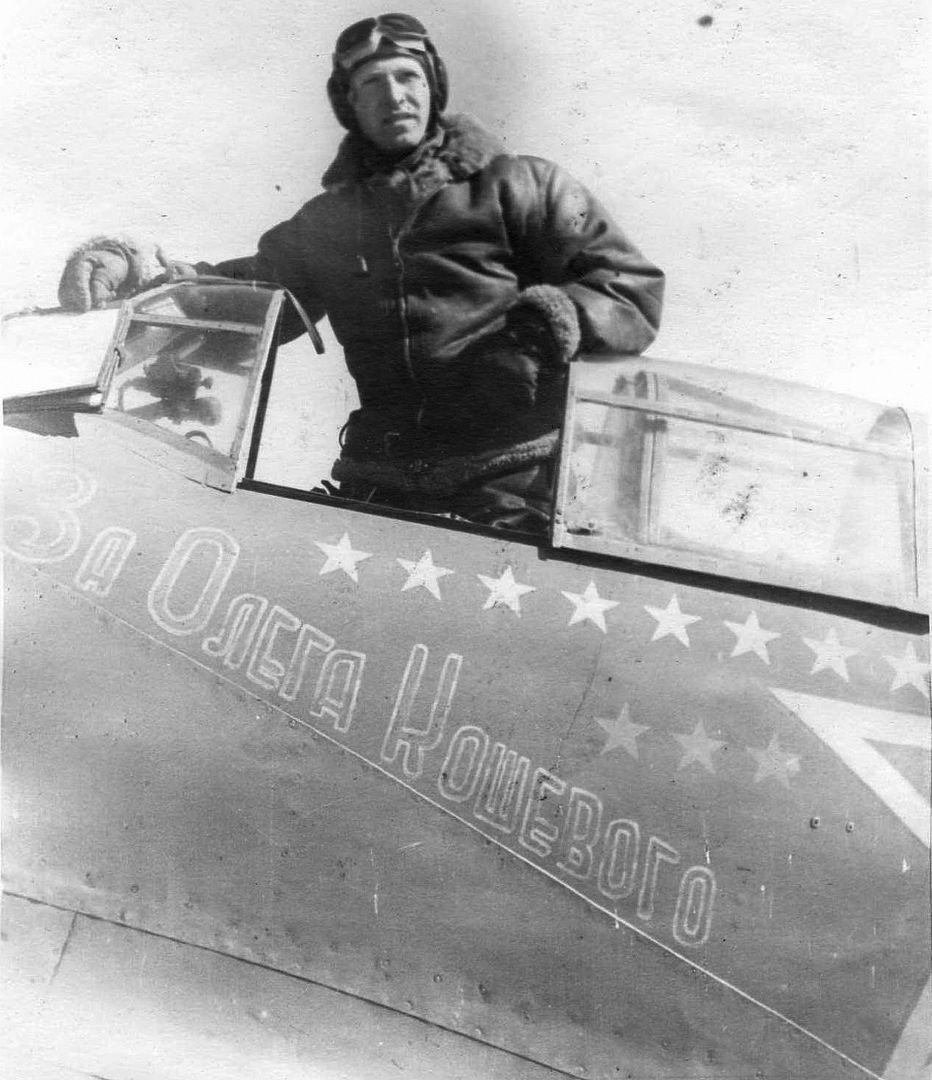
Below Soldiers and officers of the 192nd Fighter Aviation Regiment near a La-5FN fighter at an airfield in Hungary.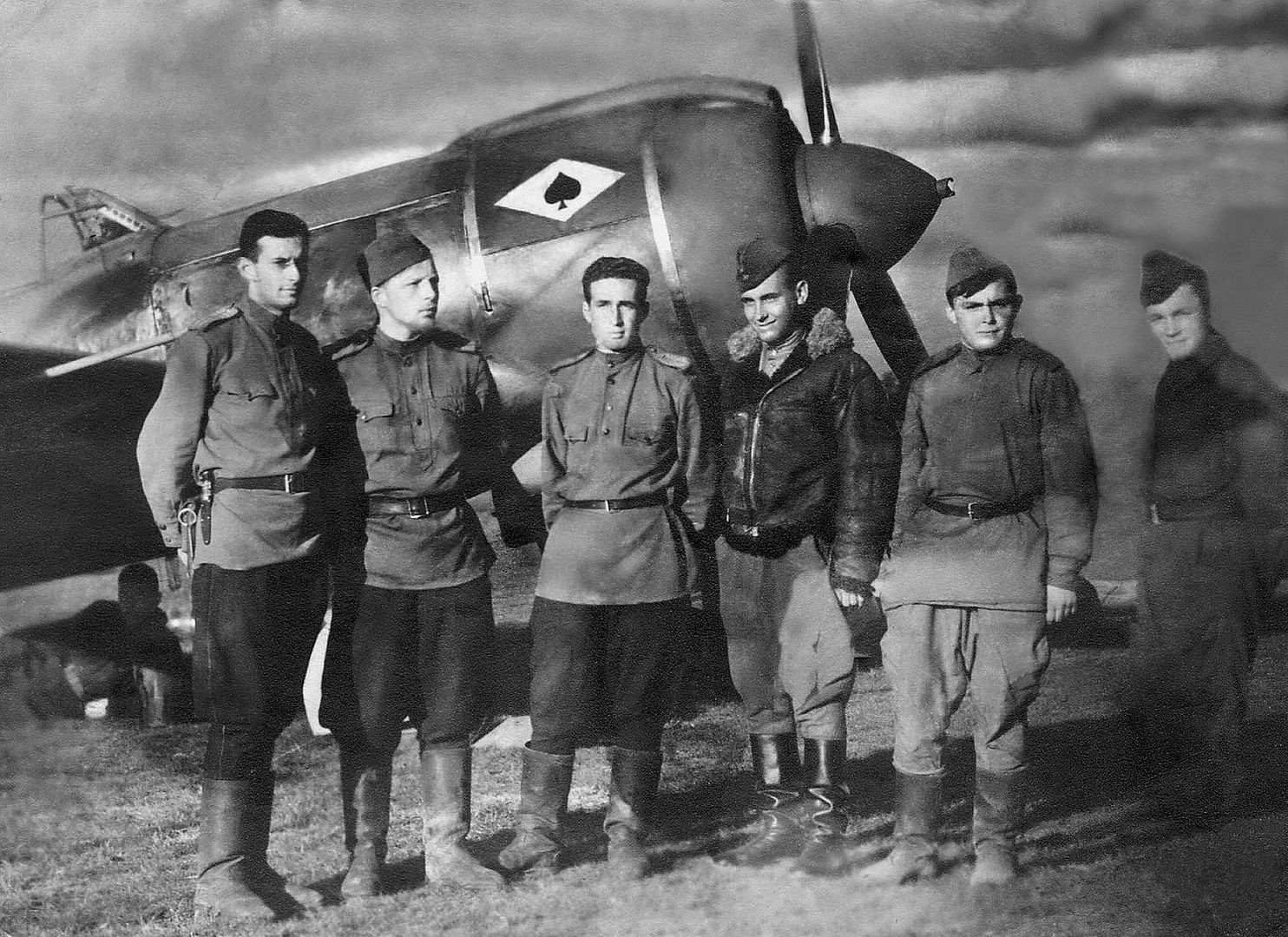
Below La-5FN Mongolian Arat fighters of the 2nd Guards Fighter Aviation Regiment. In the cockpit of the close-in fighter is the squadron's deputy commander, Hero of the Soviet Union Guards Captain Alexander Ivanovich Mayorov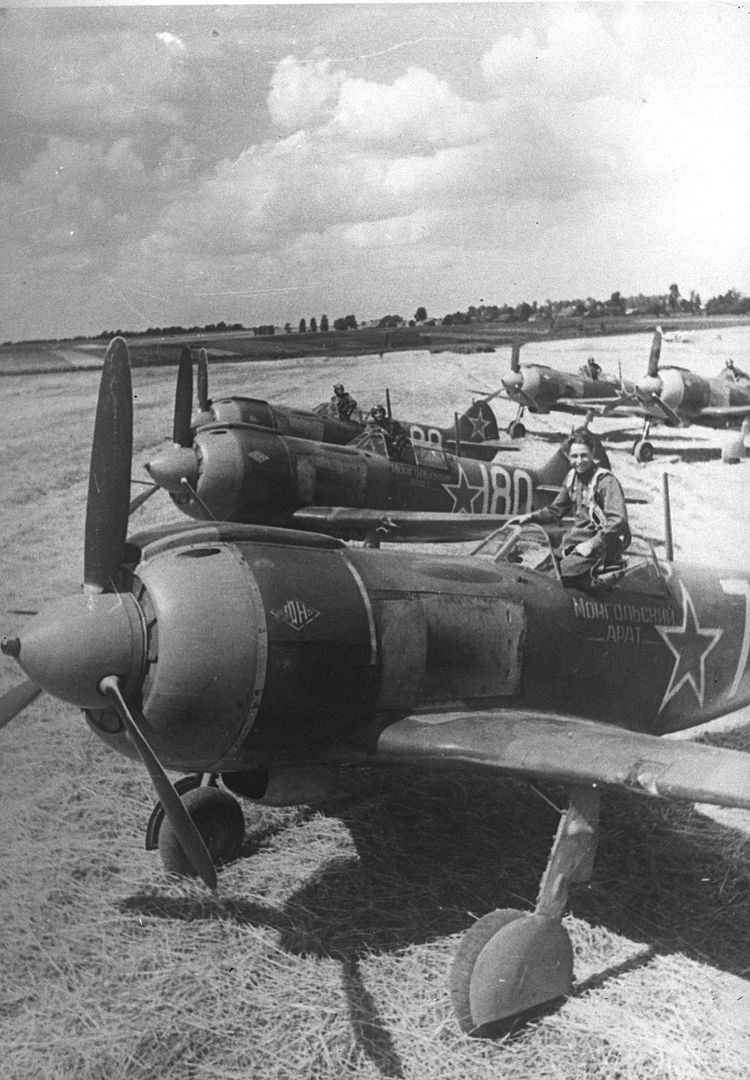
Below La-5FN fighters of the 1st Czechoslovak Fighter Aviation Regiment of the 1st Mixed Czechoslovak Air Division of the 2nd Air Army of the 4th Ukrainian Front at Tri Duby airfield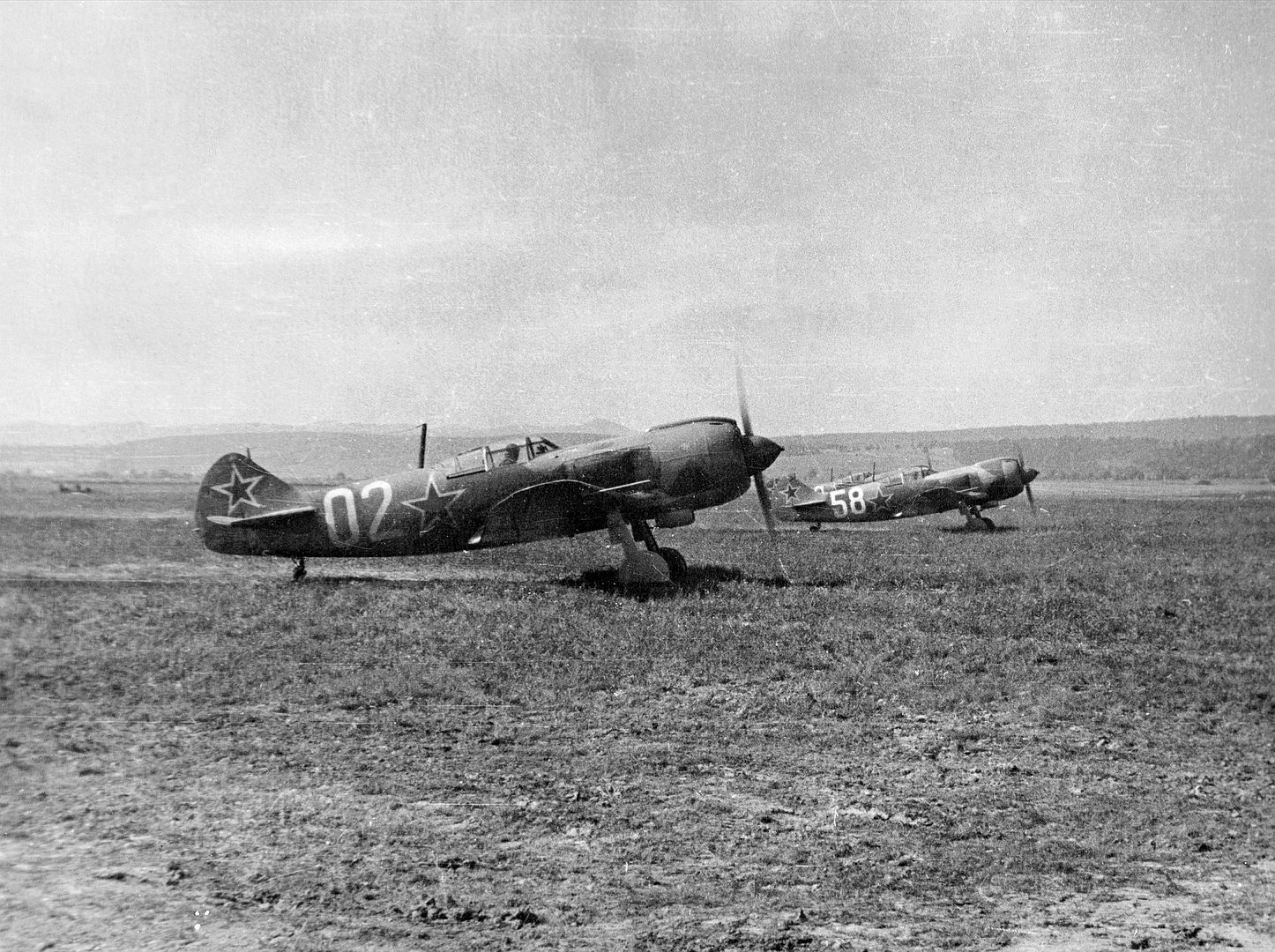
Below La-5FN fighters from the Mongolian Arat squadron of the 2nd Guards Fighter Aviation Regiment of the 322nd Fighter Aviation Division in flight.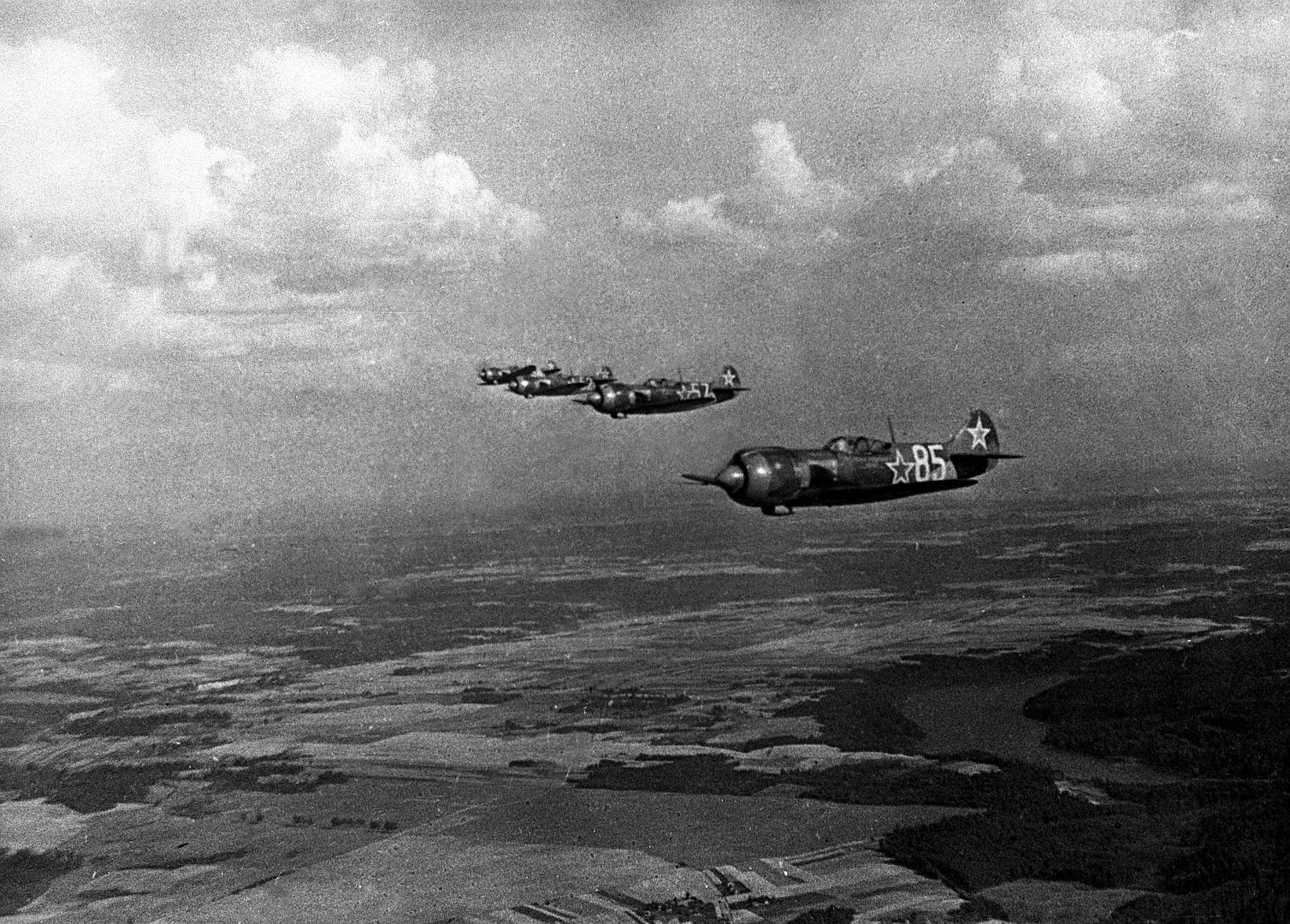
Below La-5FN fighter with tail number 95 on the taxiway of the Flight Research Institute (LII) airfield.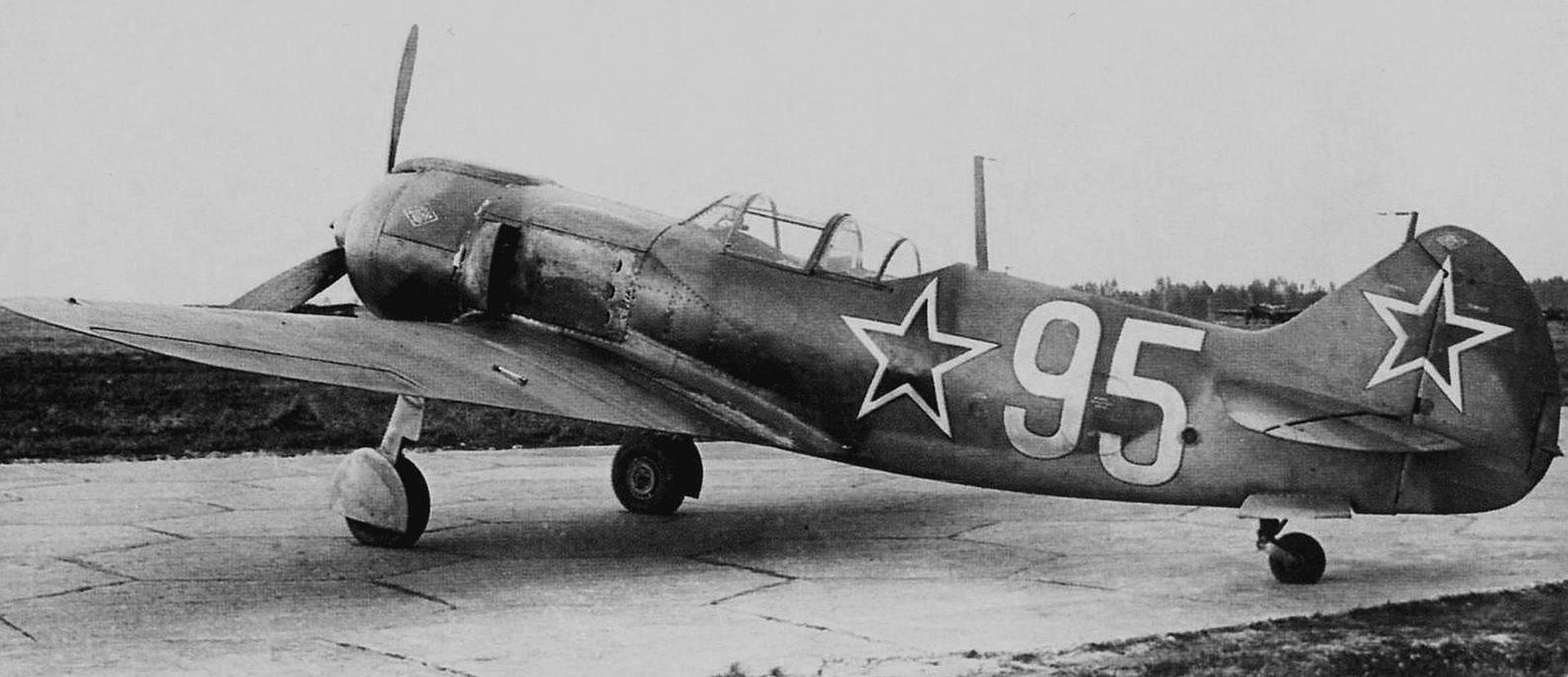
Below La-5FN fighter from the 41st Guards Fighter Aviation Regiment of the 8th Guards Fighter Aviation Division landing.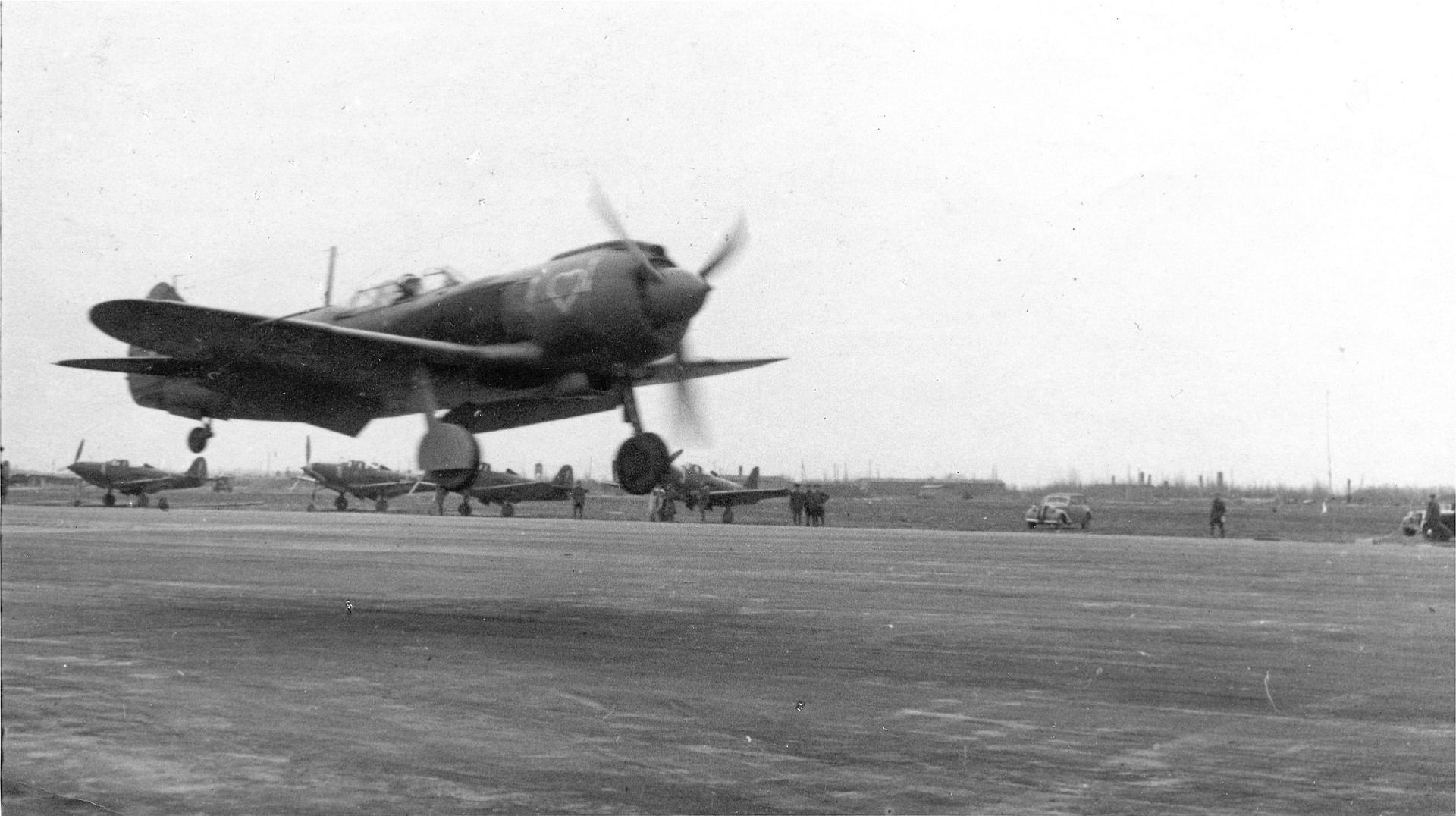
Below La-5FN fighter (tail number 91, plant no. 3910991) of pilot A.A. Popov, which crashed.1943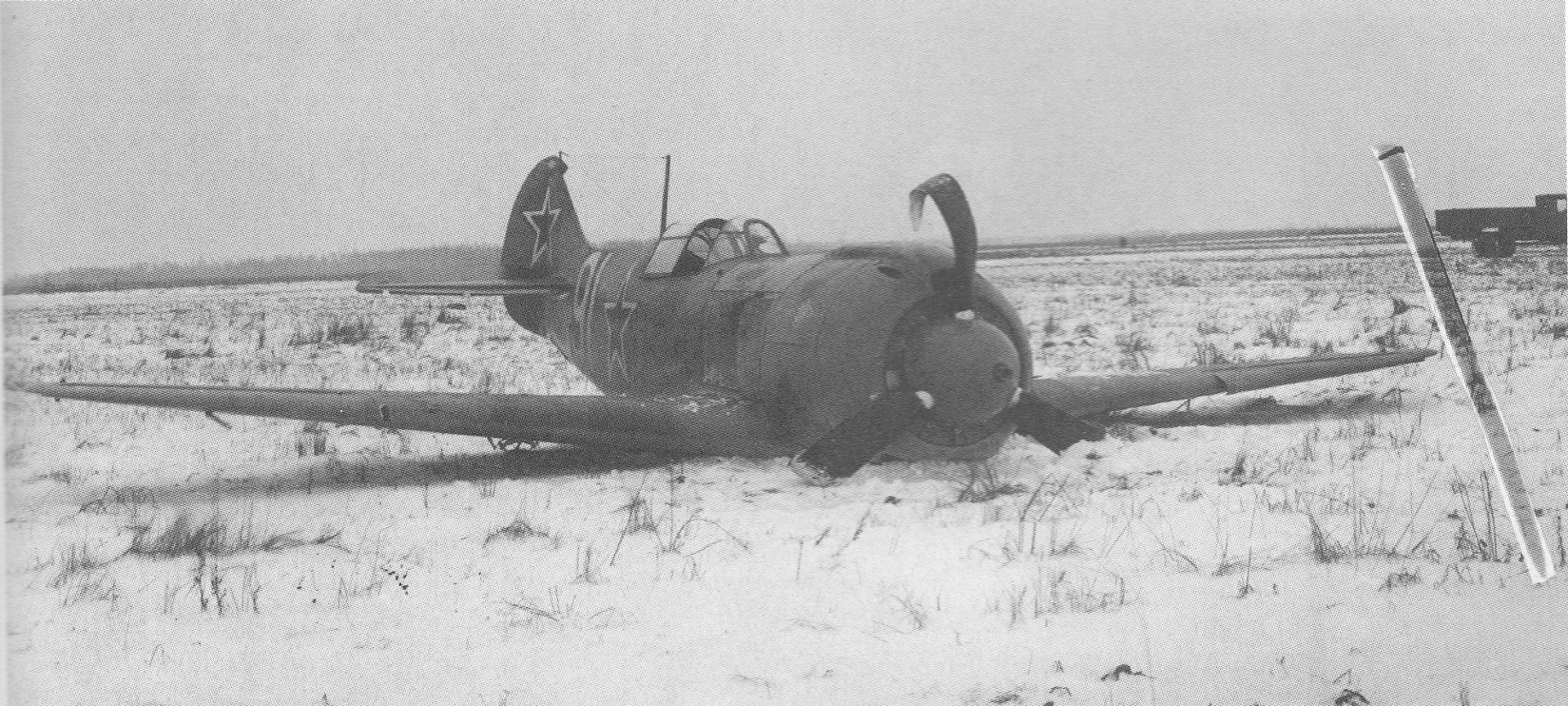
Below La-5 FN fighter from the 1st Fighter Aviation Regiment of the Czechoslovak Air Force during the Slovak National Uprising.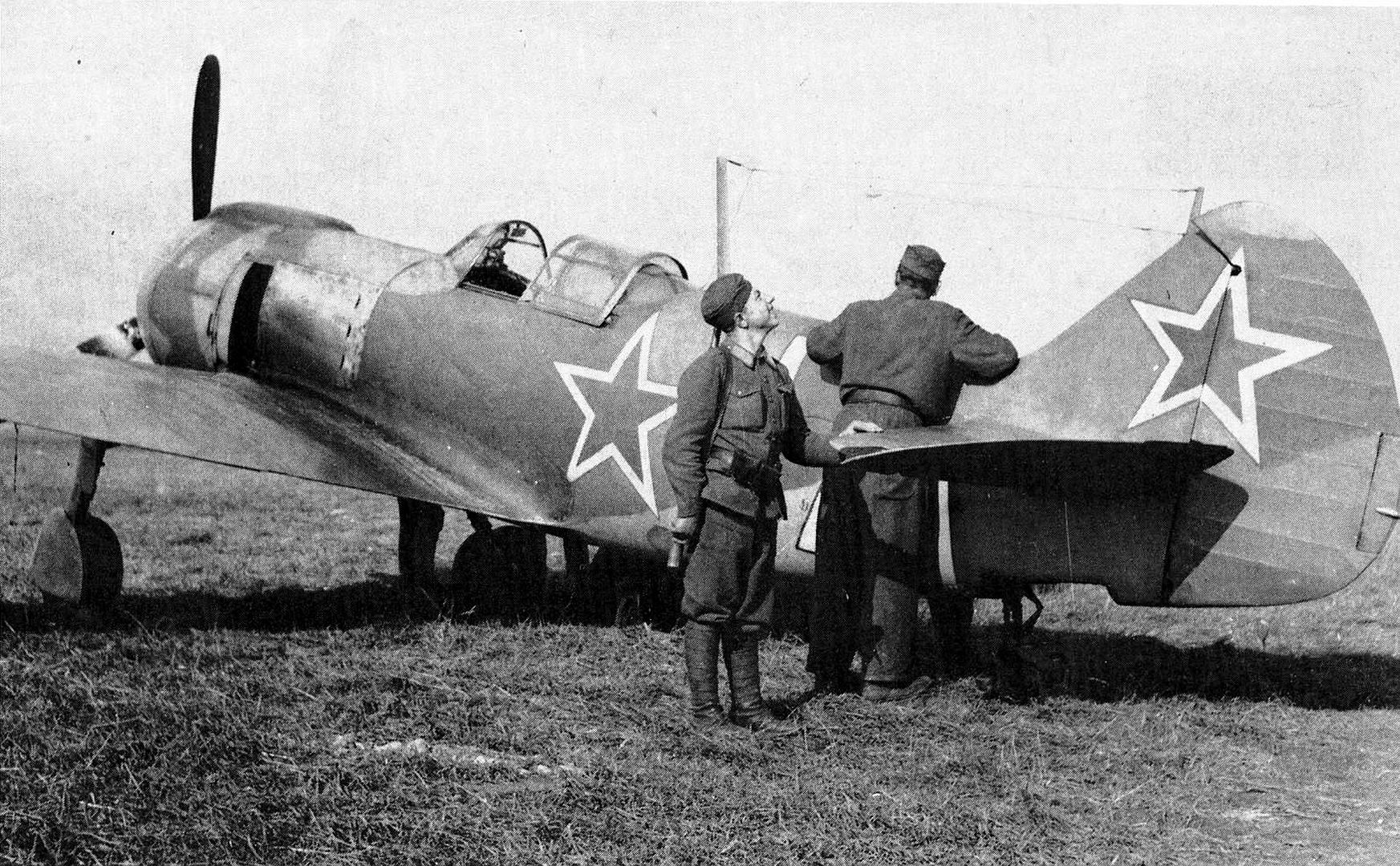
Below Junior Lieutenant Anatoly Vasilyevich Ruzin near his La-5FN fighter, tail number 15, with the inscription For Vaska and Zhora.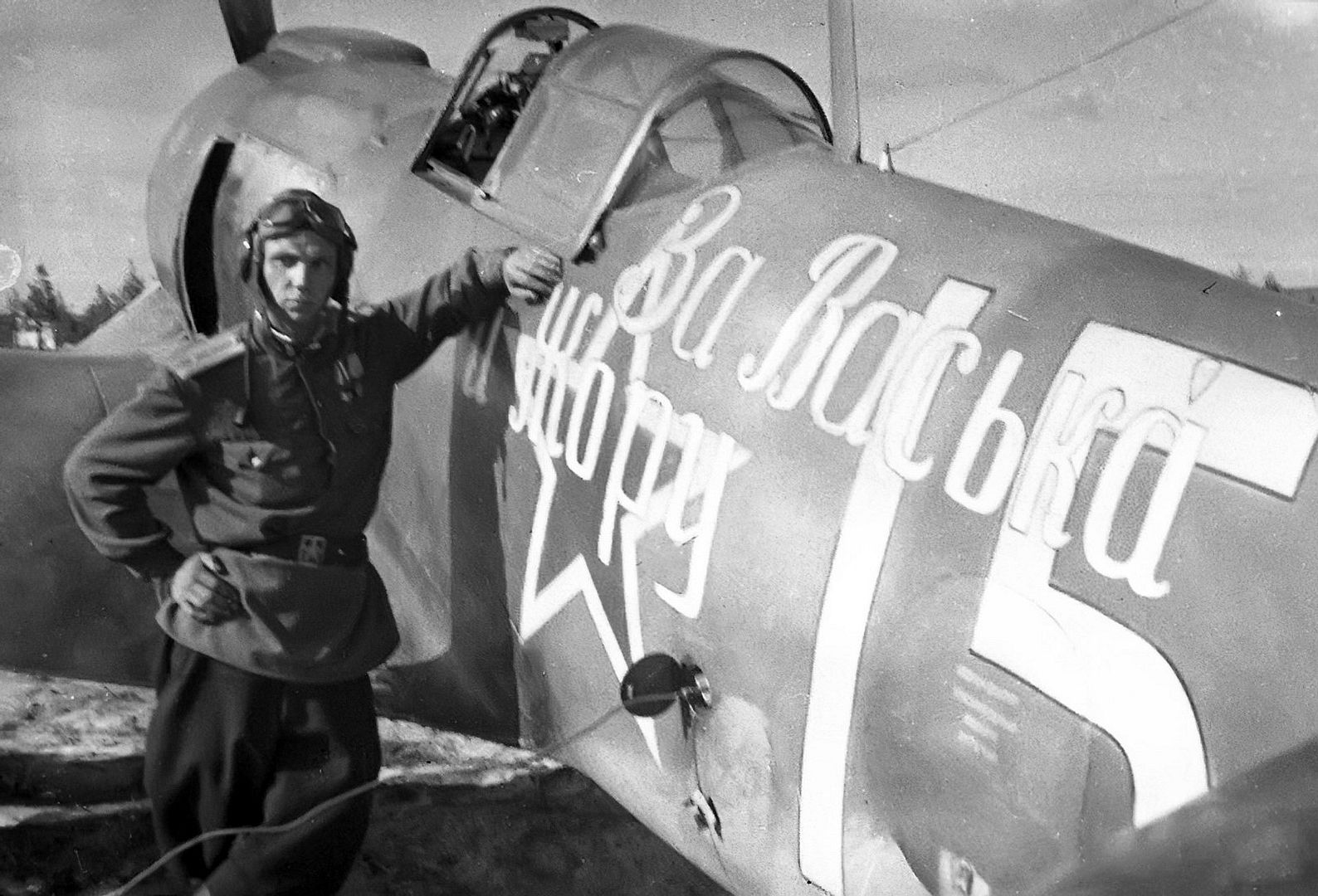
Below Heroes of the Soviet Union fighter pilots Captain Alexander Vasilyevich Lobanov left and Major Alexander Grigoryevich Pavlov converse next to an La-5FN fighter. The photo was likely taken in Czechoslovakia.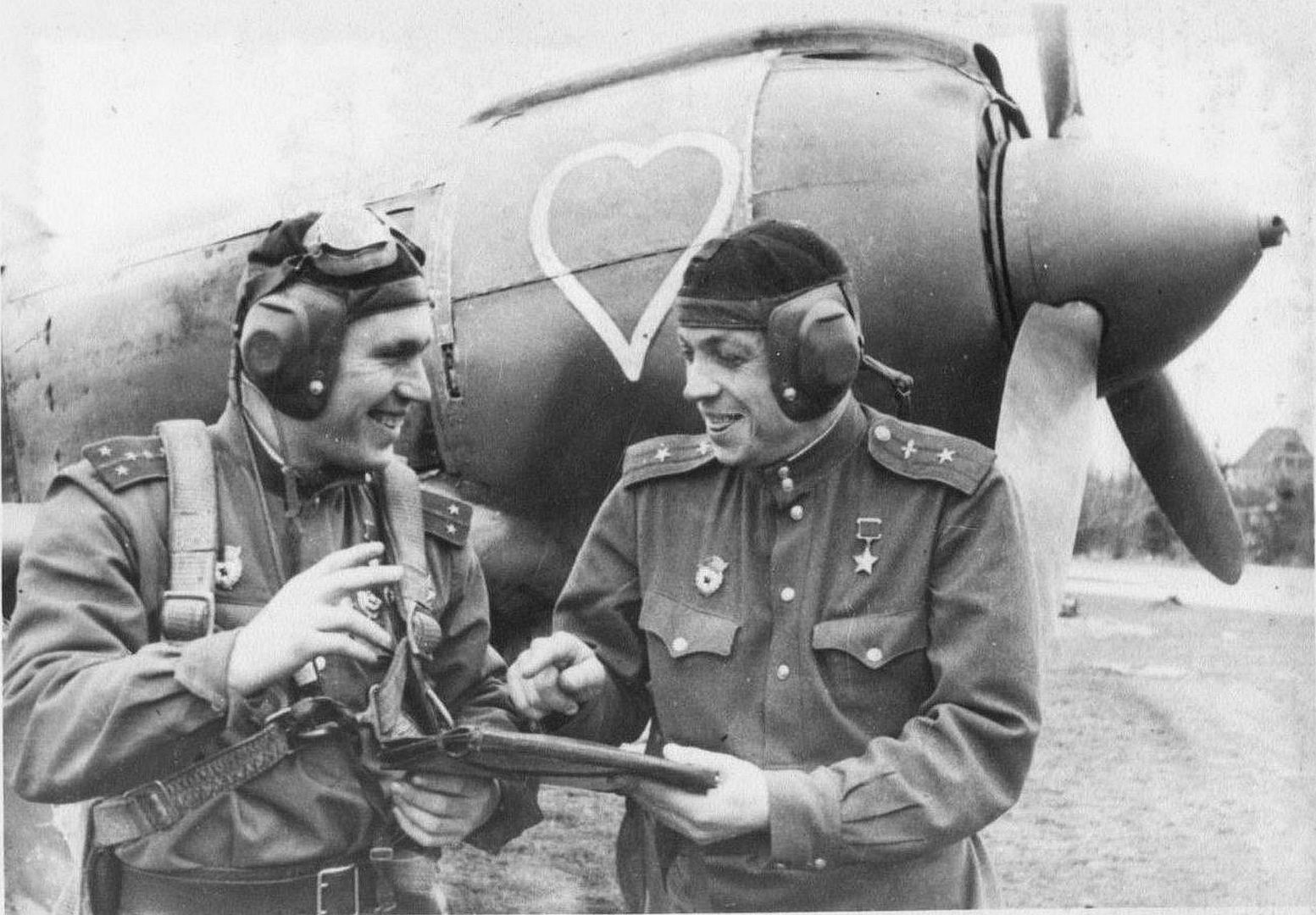
Below Guards Major Kirill Alekseevich Yevstigneyev (1917–1996), twice Hero of the Soviet Union, stands next to his La-5FN fighter. 178th Guards Fighter Aviation Regiment.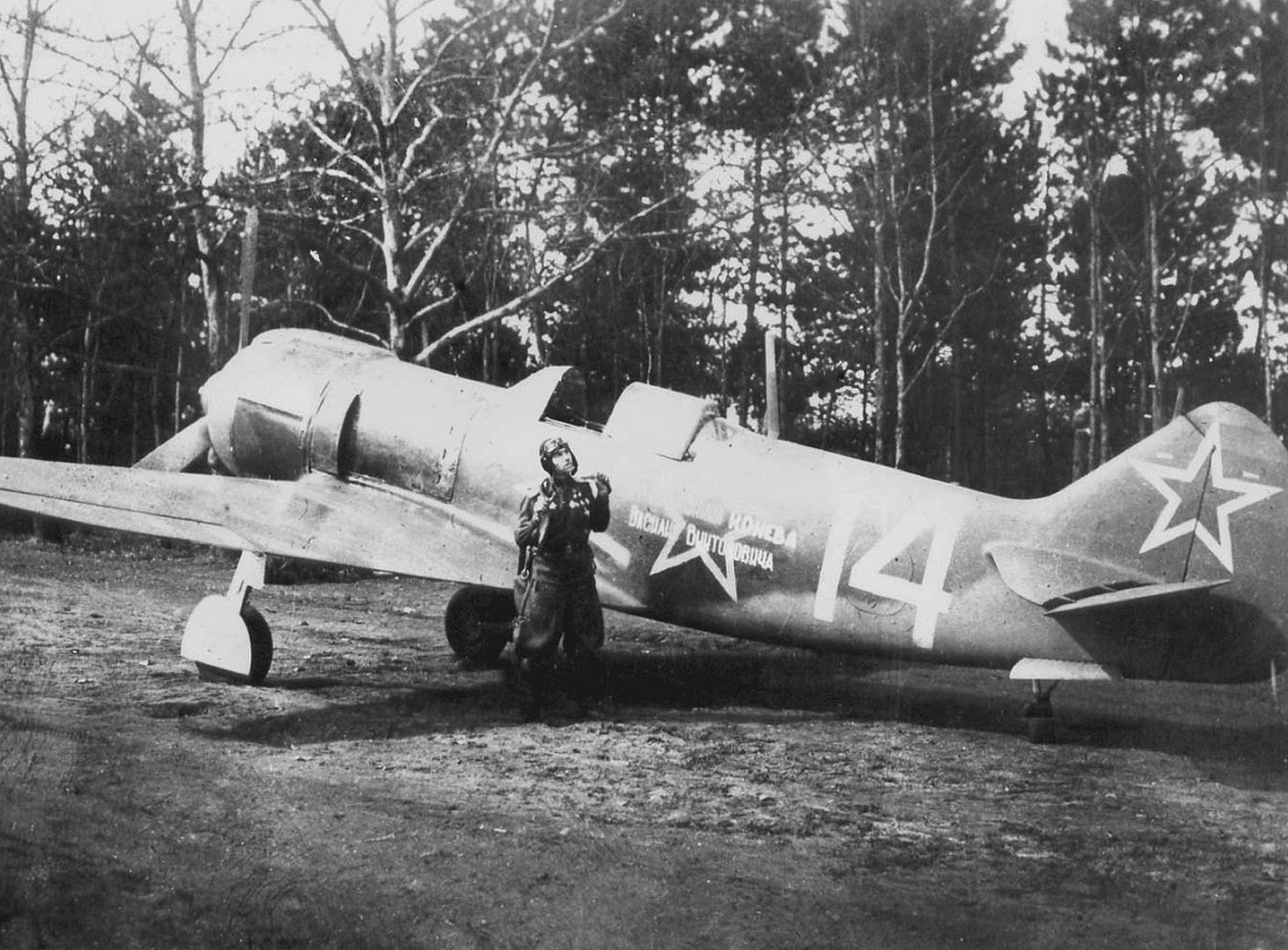
Below Deputy squadron commander of the 2nd Guards Fighter Aviation Regiment, Hero of the Soviet Union, Guards Captain Alexander Ivanovich Mayorov in the cockpit of his La-5FN Mongolian Arat fighter.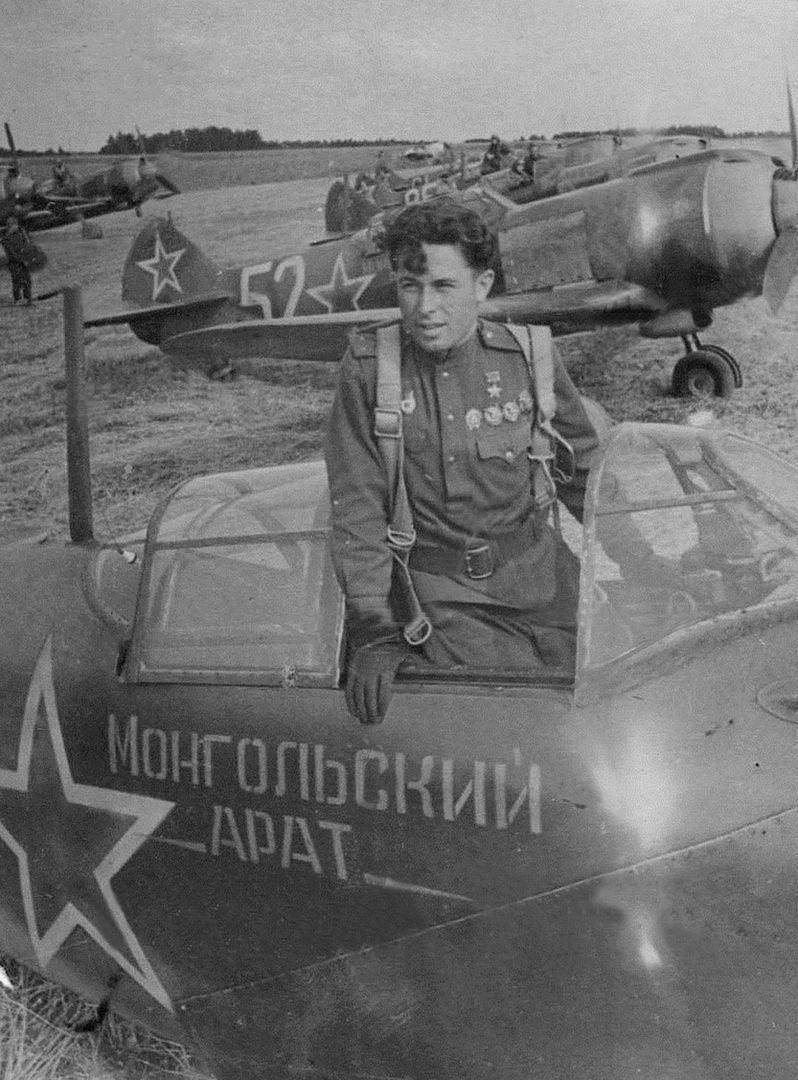
Below Czech fighter pilot Antonín Vendl (1919-2002) in front of his La-5FN aircraft. The 1st Czechoslovak Mixed Aviation Division was formed in 1944.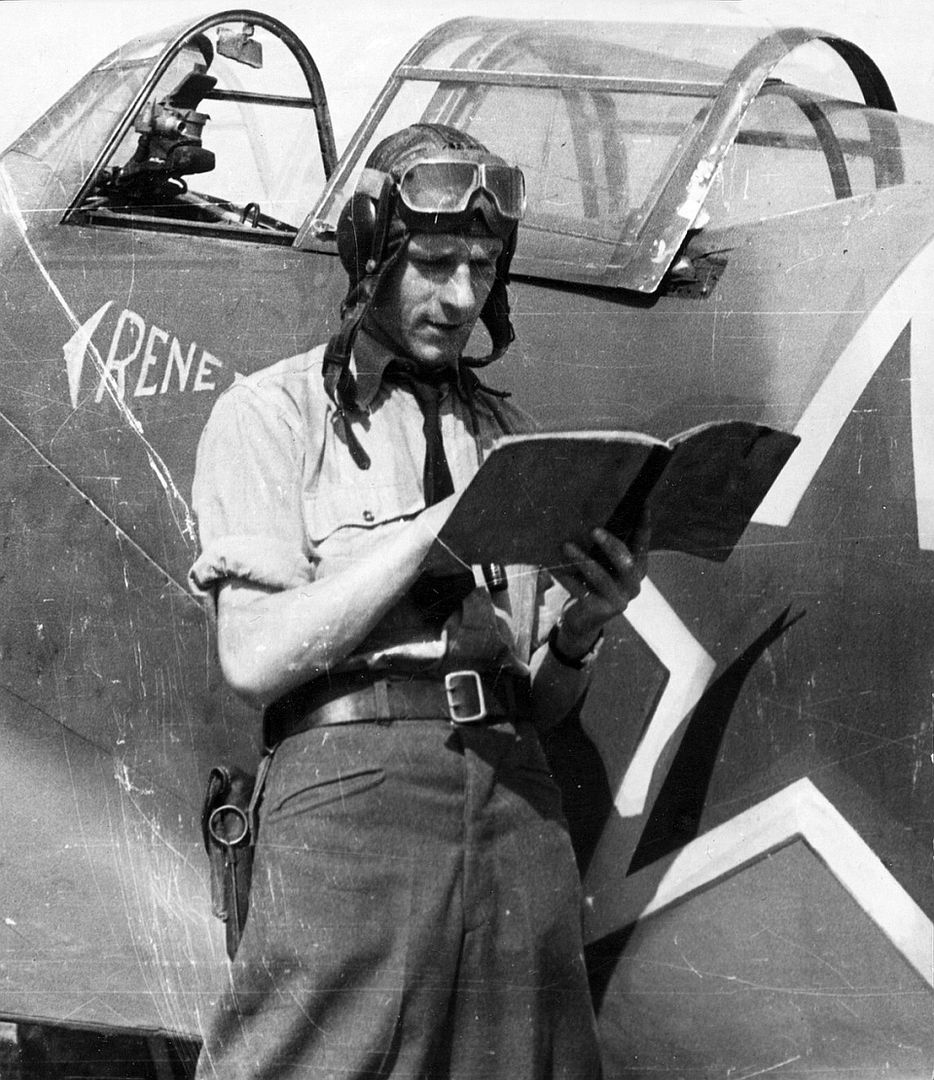
Below commander of the 482nd Fighter Aviation Regiment, Hero of the Soviet Union, Guards Major Aleksey Yegorovich Molodchinin at the airfield near the La-5FN fighter.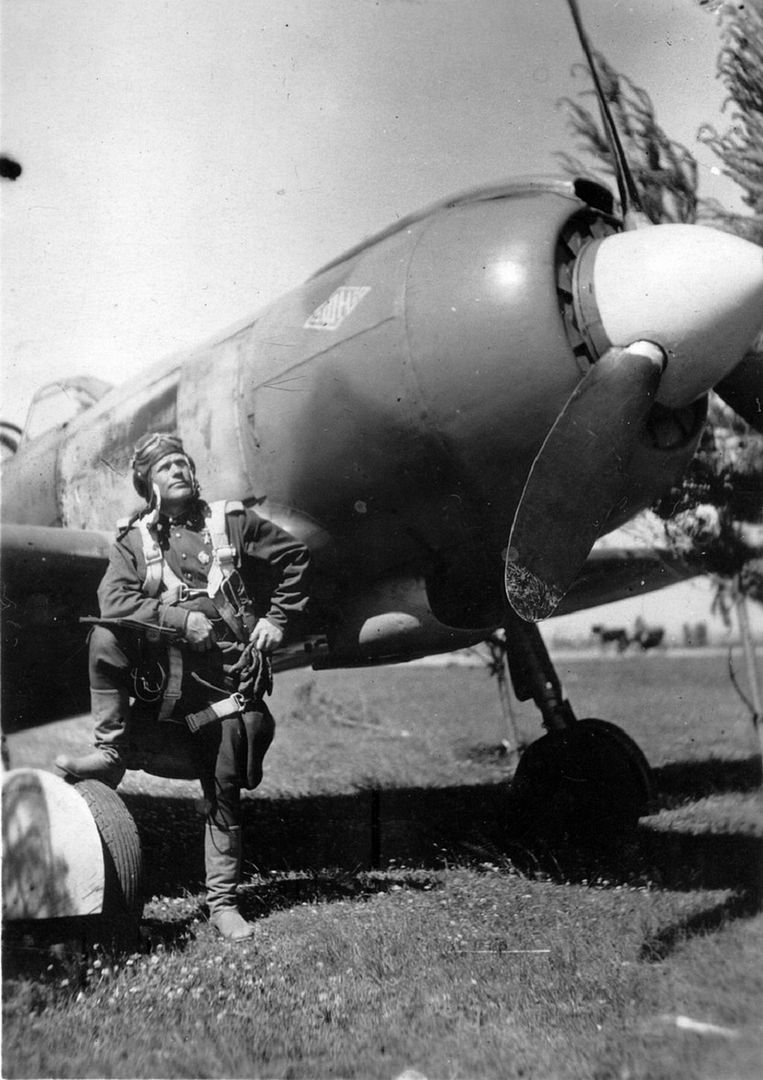
Below Captain Ivan Nikitovich Kozhedub,with his La-5FN fighter, built with funds from beekeeper V.V. Konev of the Bolshevik agricultural cooperative in the Budarinsky district of the Stalingrad region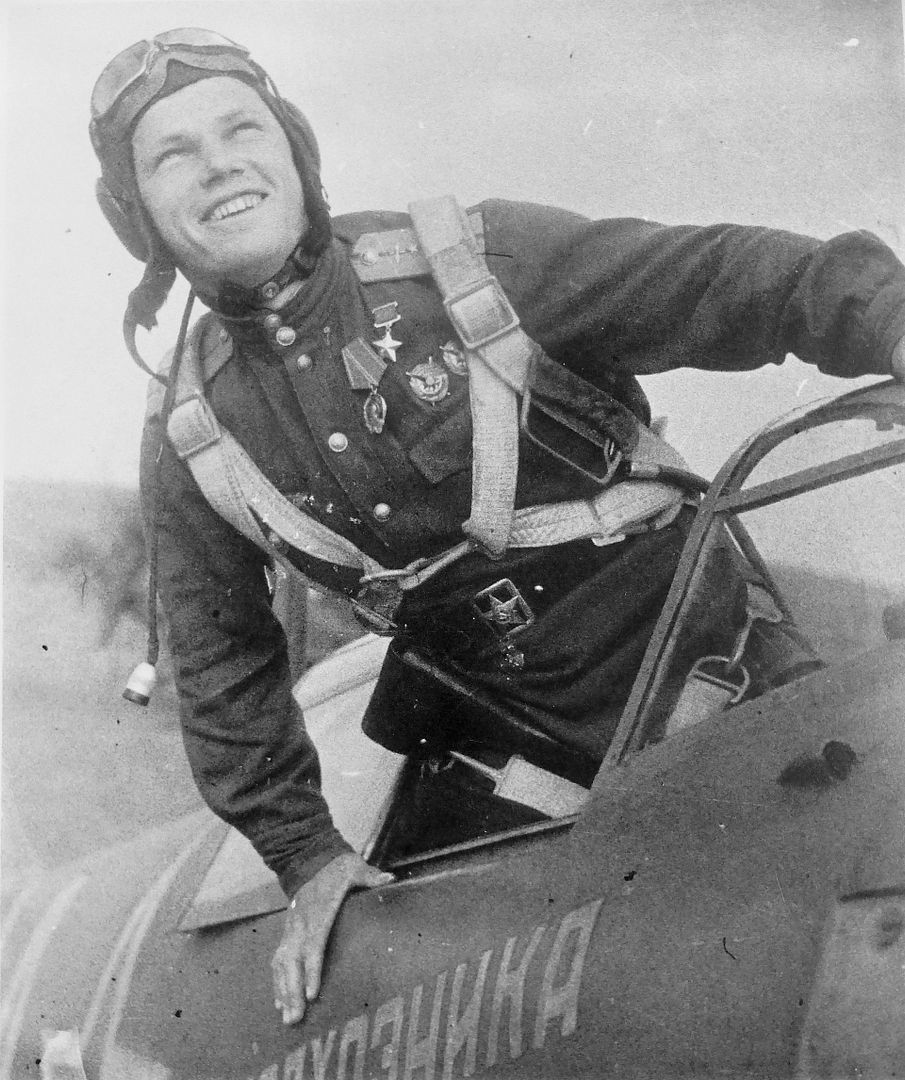
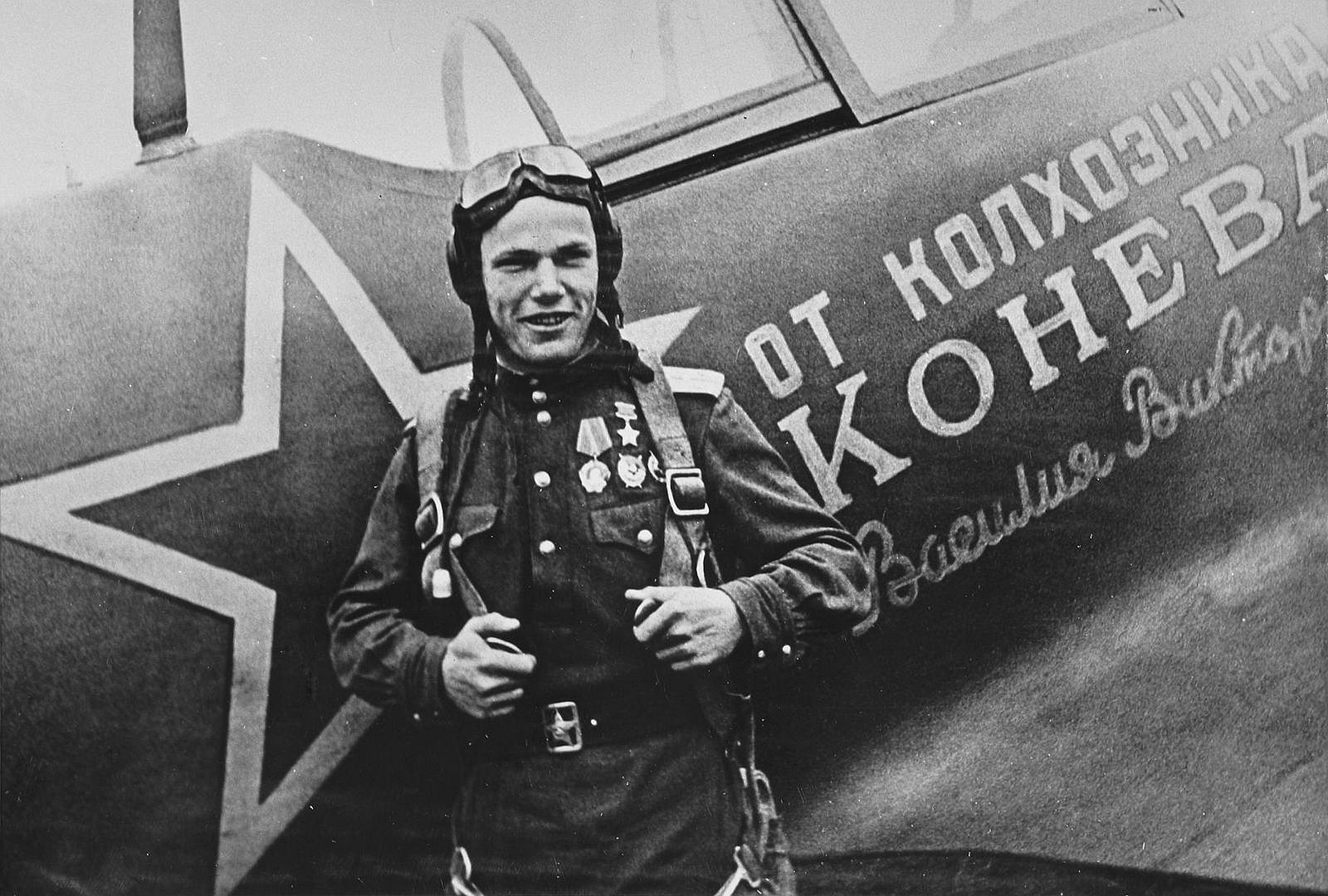
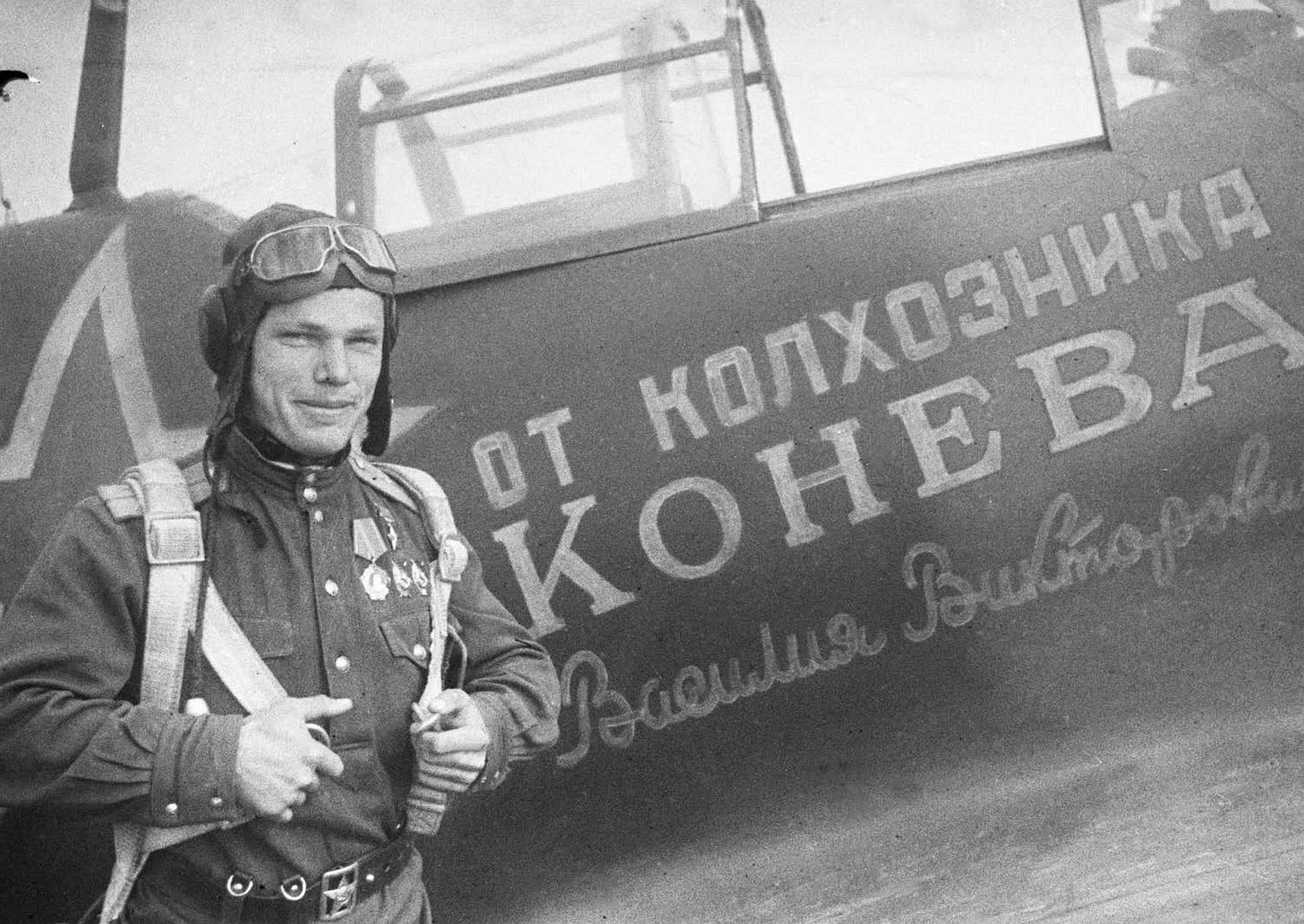
Below Camouflaged Soviet-made La-5FN fighter of Ladislav Valousek from the 1st Czechoslovak Fighter Regiment at the airfield.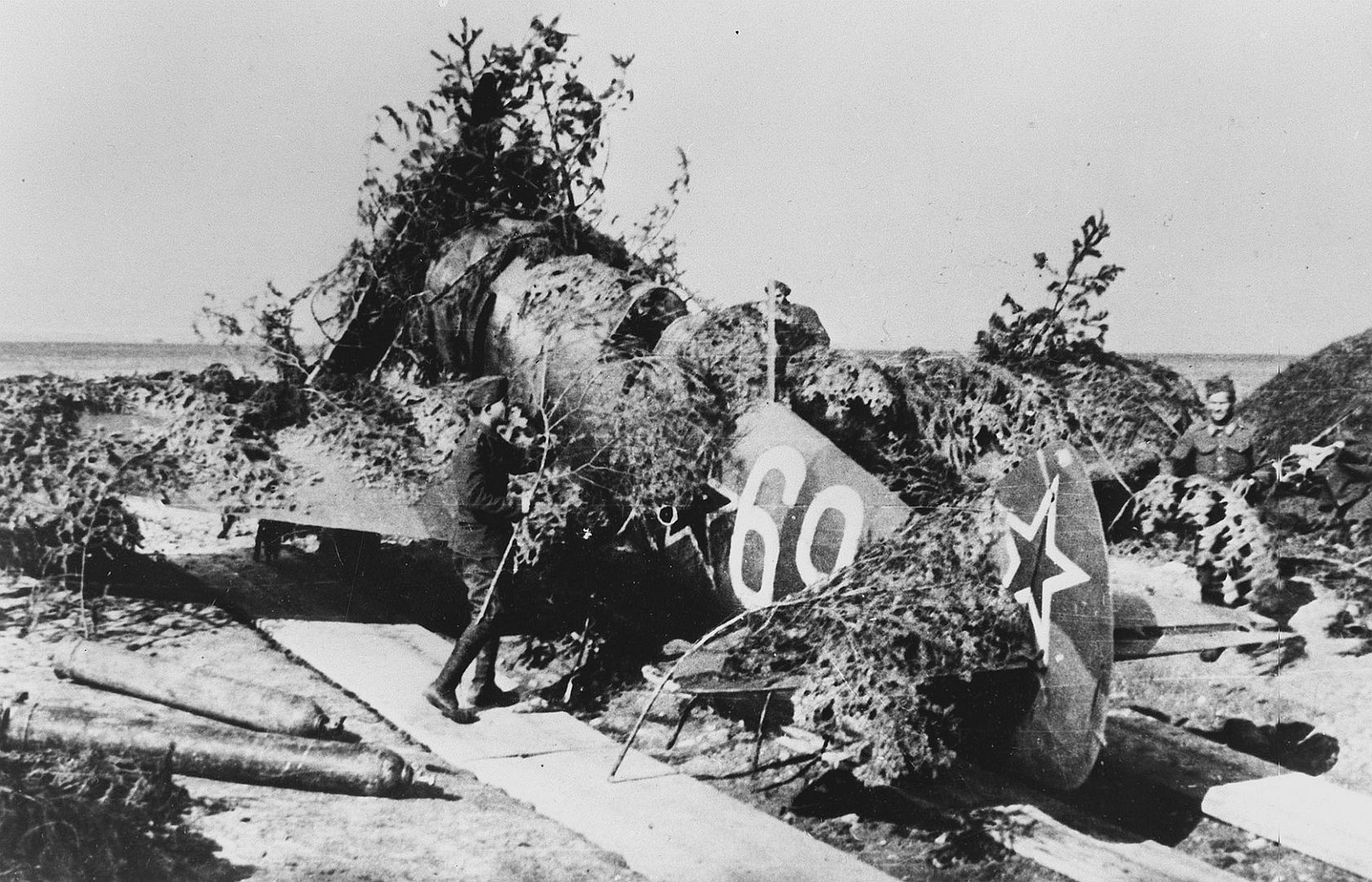
Below A pilot from the 32nd Guards Aviation Regiment (formerly the 434th Fighter Aviation Regiment) rests next to his La-5FN fighter, tail number 57. Summer 1943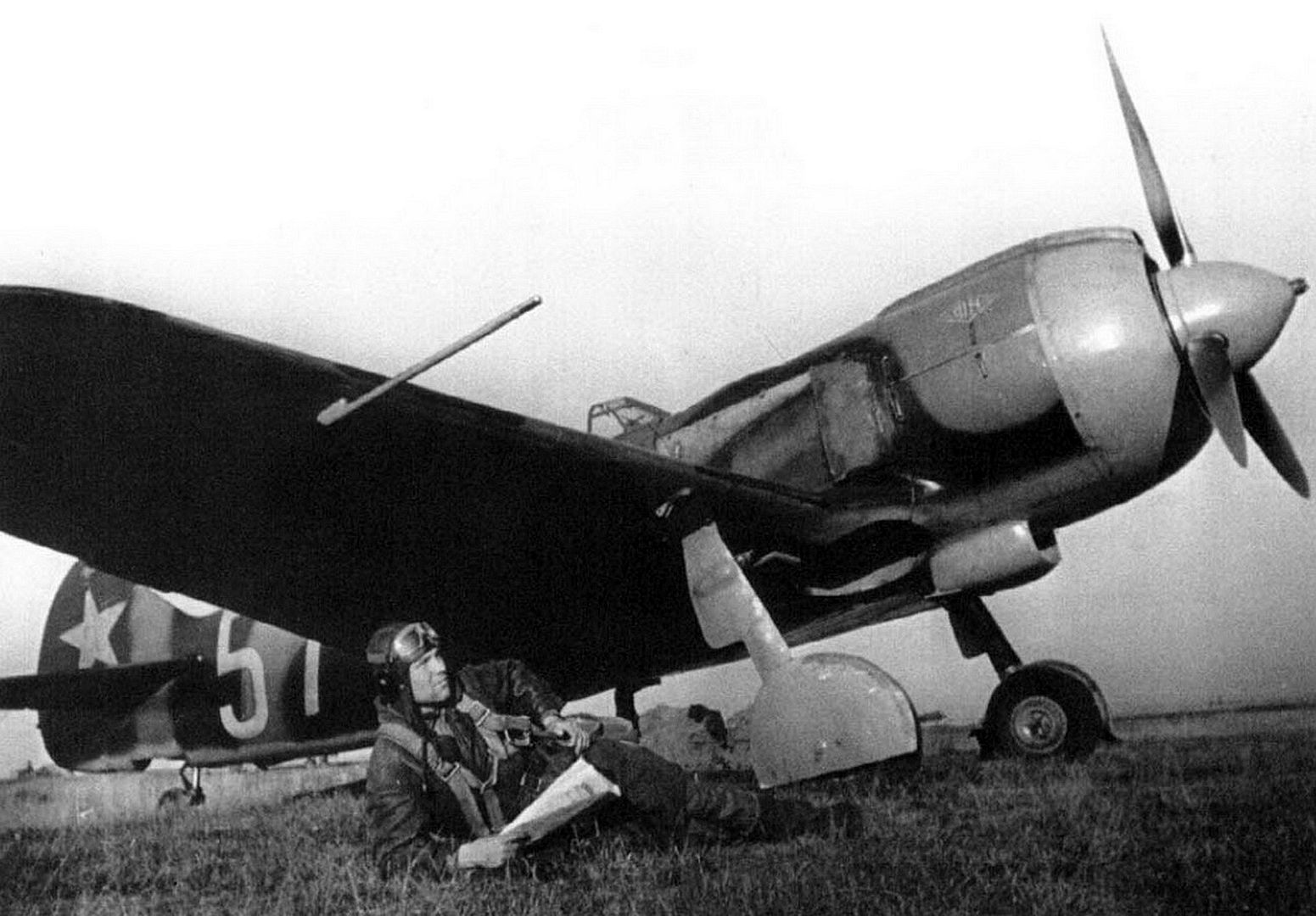
Below A Czech La-5FN fighter at an airfield during the Slavic Uprising in August–October 1944.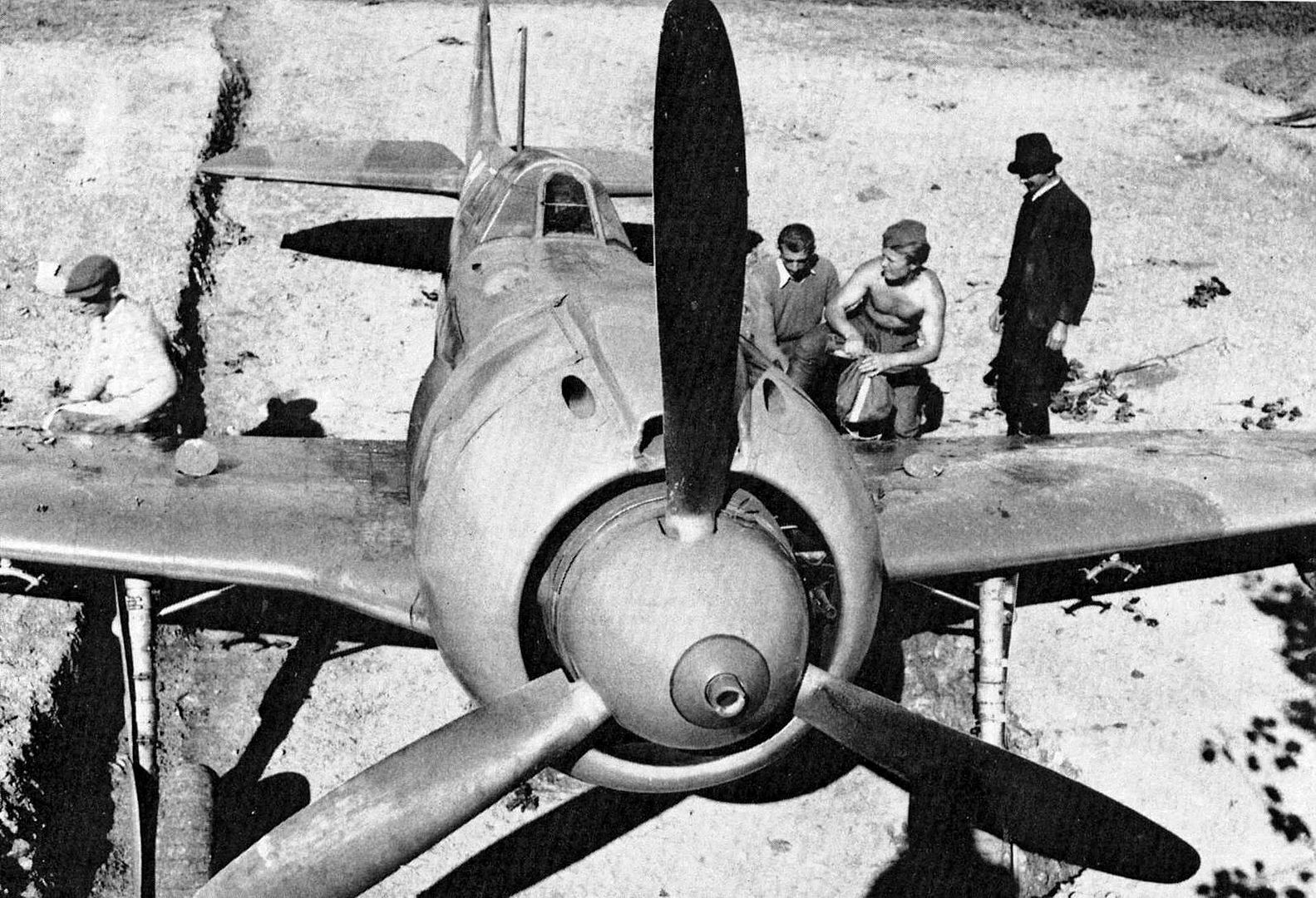
Below Lavochkin La-5UTI was a two-seat trainer variant of the baseline La-5 radial engine fighter.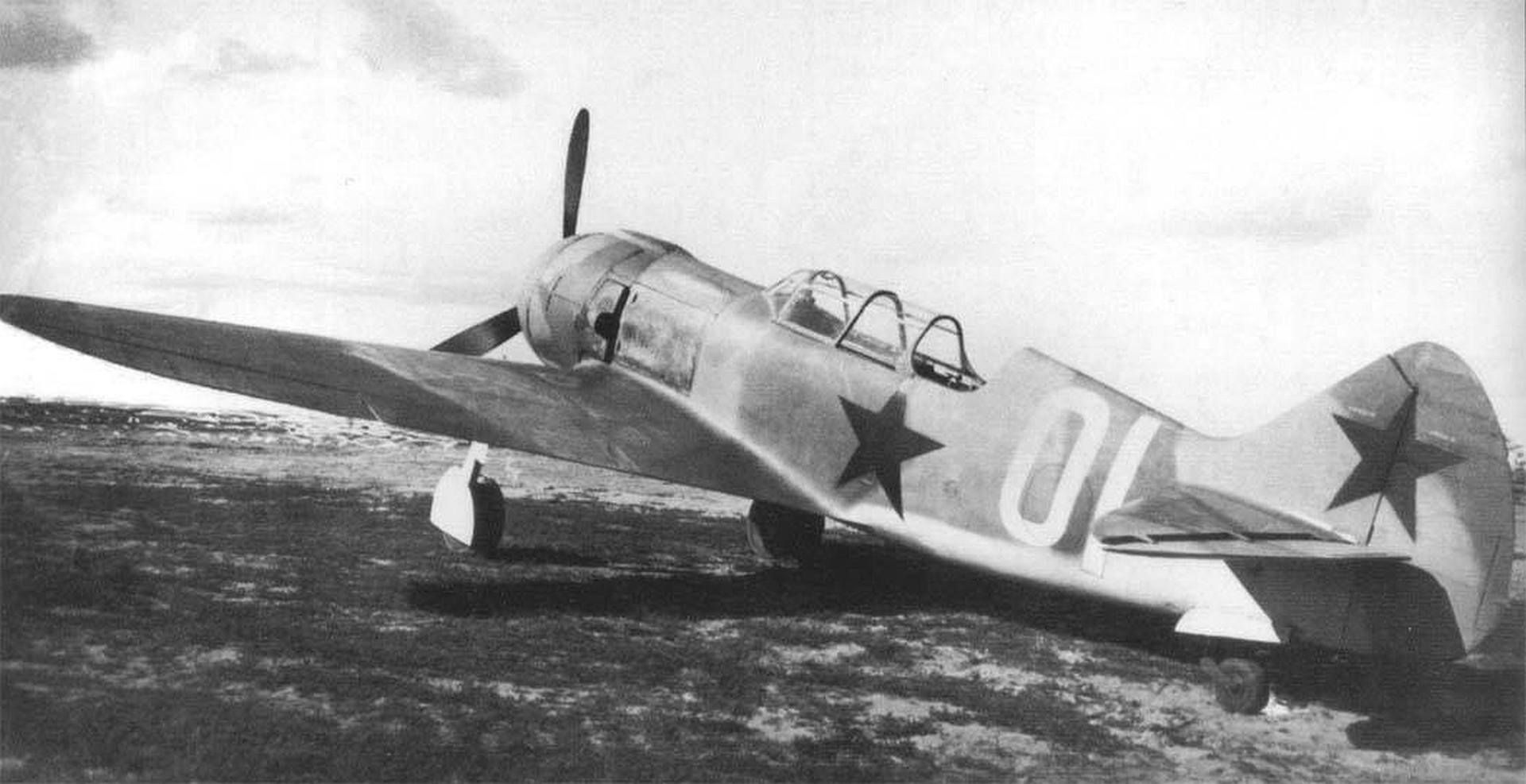
Below La-5UTI fighter trainer,converted into a photo reconnaissance aircraft on the Leningrad Front. An aerial camera was installed in the instructor's rear cockpit, and a hole was cut in the fuselage floor for the lens.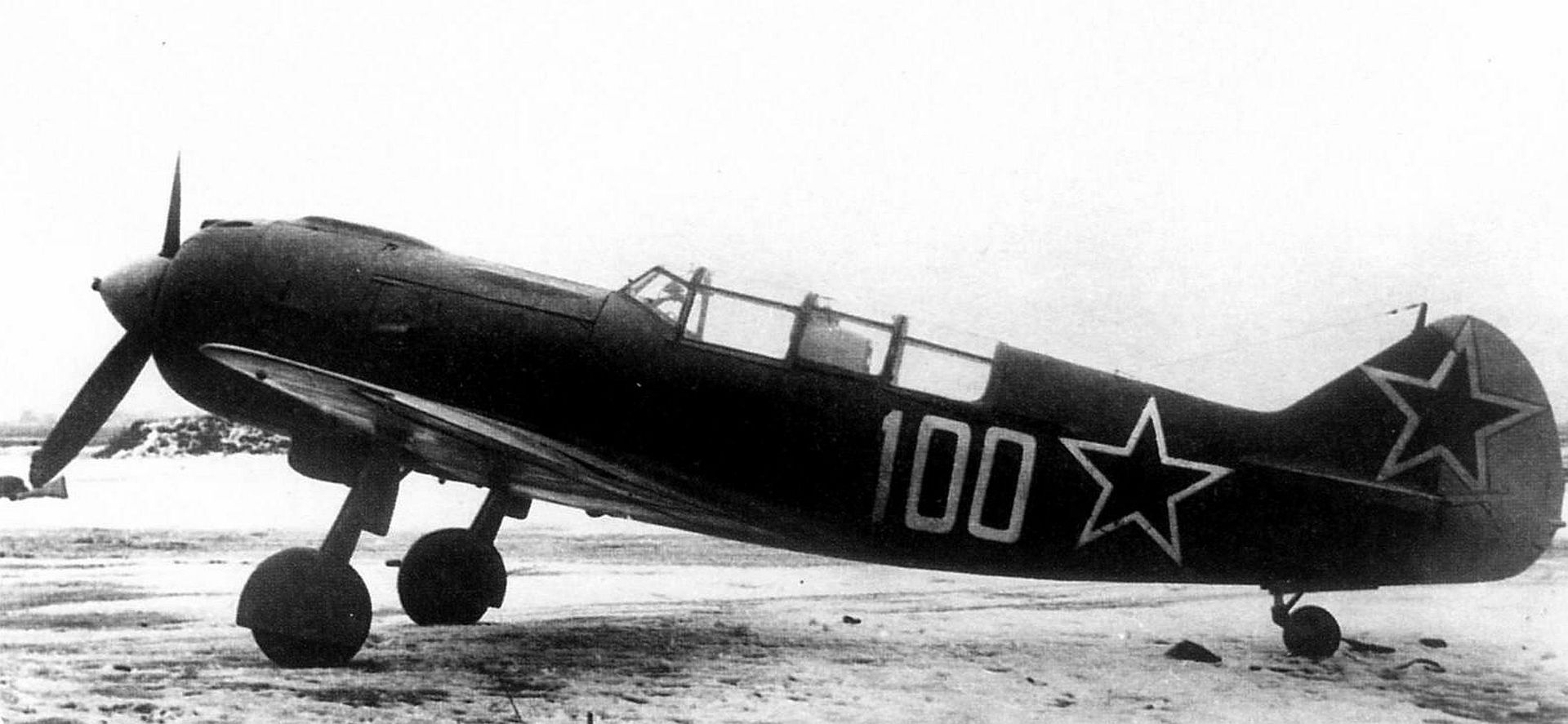
Below La-5FN fighter cutaway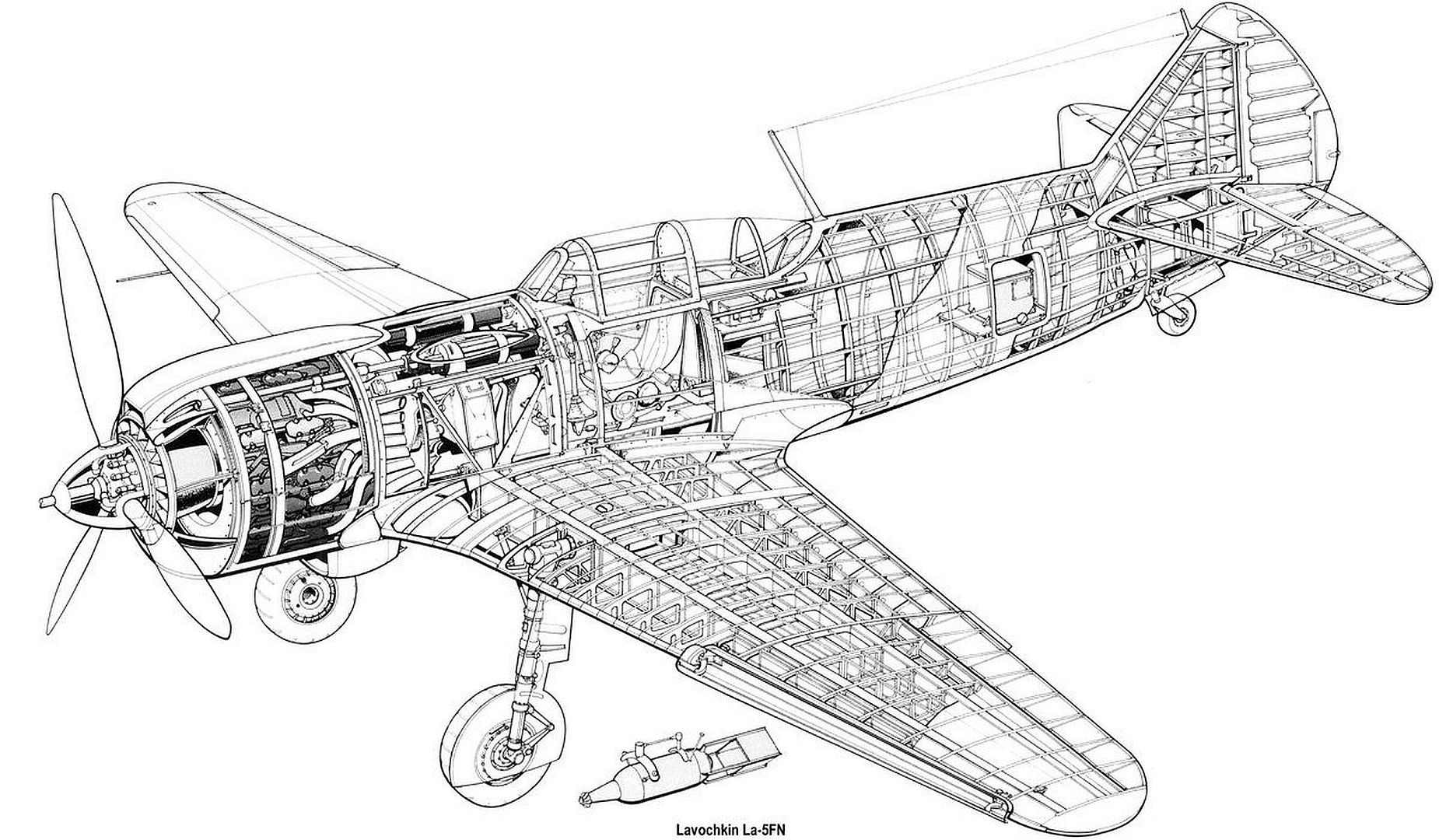
Specifications (Lavochkin La-5FN)
General characteristics
Crew: One
Length: 8.67 m (28 ft 5 in)
Wingspan: 9.8 m (32 ft 2 in)
Height: 2.54 m (8 ft 4 in)
Wing area: 17.5 m2 (188 sq ft)
Airfoil: root: NACA 23016; tip: NACA 23010
Empty weight: 2,706 kg (5,966 lb)
Gross weight: 3,168 kg (6,984 lb)
Max takeoff weight: 3,402 kg (7,500 lb)
Fuel capacity: 345 kg (761 lb) fuel + 50 kg (110 lb) oil
Powerplant: 1 × Shvetsov M-82FN 14-cylinder air-cooled radial piston engine, 1,460 kW (1,960 hp)
Propellers: 3-bladed constant-speed propeller
Performance
Maximum speed: 648 km/h (403 mph, 350 kn) at 6,250 m (20,510 ft)
583 km/h (362 mph; 315 kn) at sea level
Landing speed: 138 km/h (86 mph; 75 kn)
Range: 765 km (475 mi, 413 nmi)
Service ceiling: 11,000 m (36,000 ft)
Rate of climb: 16.7 m/s (3,290 ft/min)
Time to altitude: 5,000 m (16,000 ft) in 5 minutes 12 seconds
Wing loading: 181 kg/m2 (37 lb/sq ft)
Power/mass: 0.461 kW/kg (0.280 hp/lb)
Max rate turn: 18.5 seconds
Armament
Guns: 2 × 20 mm (0.787 in) ShVAK cannon with 170 rpg
Bombs: 2 × bombs up to 100 kg (220 lb) each
(Text from Wikki)
Post a reply
- Go to Previous topic
- Go to Next topic
- Go to Welcome
- Go to Introduce Yourself
- Go to General Discussion
- Go to Screenshots, Images and Videos
- Go to Off topic
- Go to Works in Progress
- Go to Skinning Tips / Tutorials
- Go to Skin Requests
- Go to IJAAF Library
- Go to Luftwaffe Library
- Go to RAF Library
- Go to USAAF / USN Library
- Go to Misc Library
- Go to The Ops Room
- Go to Made in Germany
- Go to Campaigns and Missions
- Go to Works in Progress
- Go to Juri's Air-Raid Shelter
- Go to Campaigns and Missions
- Go to Works in Progress
- Go to Skinpacks
- Go to External Projects Discussion
- Go to Books & Resources
